#his views on religion and politics are so dumb
Text
The only way Star Wars works for me is if i "kill the author" George Lucas. Especially true for the prequels.
#he has such a weird sense of morality#his views on religion and politics are so dumb#he knows nothing about human psychology#and i'm barely starting#anti george lucas#star wars critical
10 notes
·
View notes
Note
i heard washington was willing to give madison a bureaucratic position should he fail the house race in 1789—what do you think his politics would’ve been like if he was a member of the executive?
This is a really interesting question!! I don't think it would be very different.
So, firstly, the reason Madison wasn't considered seriously by Washington was because Washington had learned through his war experiences that giving appointments based off of seniority was very crucial to not upsetting very influential people, which is why the War and State departments went to General Henry Knox and Thomas Jefferson respectively, and Hamilton was not the first contender for Treasury Secretary. Knox would later get upset whenever Hamilton was selected for assignments before him, further demonstrating the importance of seniority.
Madison, though we know him as the fourth president and a prestigious southern landowner, did not have that kind of reputation in 1789, obviously. In the 1780s, he was still a rising star, and didn't have a whole lot of publicity in his toolbelt. He served in state committees, but only had two national positions, in the Philadelphia Convention (which was temporary) and in the Confederation Congress (but he wasn't particularly important there). While Washington respected him greatly and Jefferson was his friend, he couldn't give him a major appointment, such as being one of his ministers, without offending SOMEONE.
To get into your question, I think his politics would really depend on what department he was in charge of. We can eliminate Treasury because he didn't have any economic qualifications, and while Washington was not aware of Hamilton's financial skills when he appointed him, he intimately knew that Hamilton could manage a department, including the financial aspects. Madison was not particularly managerial, so Hamilton was more qualified in that respect, even though their experience levels were the same in Washington's perspective. And ofc, James Madison didn't know shit about war (i mean, look at how the War of 1812 went. yikes!)
Source: His Excellency: George Washington by Joseph J. Ellis
So this leaves the State department and Attorney General. Personally, I think Madison would only really qualify for the latter, since the only diplomatic experience he had was within the United States with the natives. However, Madison was an accomplished lawyer and the largest legal issues at this time concerned the Constitution, which Madison was THE expert of, as the author of the Virginia Plan and the most influential Federalist papers (according to Ellis, Washington was aware of the authors of The Federalist, I don't see how this is possible, but it is to Madison's credit.
Source: The Three Lives of James Madison by Noah Feldman, His Excellency: George Washington by Joseph J. Ellis
Madison's legal career began with the defense of freedom of religion, which we can see in the Constitution, and consistently throughout his life. This is definitely a hill he'd die on, and he was very well educated on it. Basically, just look at the Bill of Rights ("which i wrote/the ink hasn't dried"), and you can see, for the most part, Madison's key beliefs. ACTUALLY i recommend reading the original draft of the Bill of Rights because you can get a more clear picture of what Madison believed should be specified in the Constitution.
Source: The National Archives
Ron Chernow is gonna get mad at me but i KNOW, I KNOW, that Thomas Jefferson was a major influence on Madison's views in the 1790s. "Well, Jefferson wasn't even in America when Madison betrayed Hamilton" I DONT GIVE A RATS ASS RON, EVER HEARD OF A FUCKING LETTER, YOU ANCIENT BITCH?! News flash, this isn't ancient fucking Greece, you can WRITE LETTERS TO PEOPLE IN FRANCE FROM NEW YORK IN 1790 YOU DUMB ASS. Anyway.
Jefferson was a political radical (shocker! he never stopped being absolutely insane), and he definitely pushed Madison. I talked about this in my post about their relationship, however, I want to emphasize that Jefferson did have a perceivable influence on Madison's opinions, and you can see it in their correspondence. And, yes, Jefferson was a manipulative person, but he was also a fellow Virginian who took states' rights very seriously. I think that was the most influential aspect on Madison, was that someone from his home state was in his ear telling him how much injustice was being done to people from his native region, and how he should be fighting back against that. When we see Madison in the executive, he quickly realizes why Washington and Hamilton and the other guys that were in executive positions during the Revolution were Federalists. He struggled so much in 1812, because you cannot wage a war on an united platform, and thats what he and Washington had in common.
It seems like, from this perspective, that if Madison were Attorney General, or even a Secretary, he'd have that realization sooner. I don't think so. If Hamilton, in his hypothetical, was not Secretary of the Treasury, maybe he would, and maybe he'd remain a Federalist, since it was Hamilton's financial plan that caused Madison's switch in political party, but if Hamilton was still Treasury Secretary, Madison would still switch. Hamilton's Report on Public Credit said "fuck you we need to fix this crisis, facts over feelings" to states' rights activists, and Madison and Jefferson took that as a personal attack.
Source: Alexander Hamilton by Ron Chernow
To wrap things up, Madison's core values would not change, and a position in the executive would give him more of a platform to implement them, and that might have affected the judicial reforms around the turn of the century, but I really don't think we'd see a huge jump. Thank you for your question!
#alexander hamilton#history#amrev#thomas jefferson#american history#george washington#james madison#1790s#washington administration#1700s#18th century#american revolution#asks
23 notes
·
View notes
Text
I wanna talk about a hyperfixation of mine: a little but of Queer History- W.H. Auden and gay poets
i would like to share with you a little bit of queer history, not super in depth but i want to share it with anyone whos not aware nonetheless (also i have no idea how many people know about this, so if this turns into a "oh everybody knows THAT"... hush. i dont care.
Okay, so a while ago I had to do a project on some poets asigned to me and write a short bio on them, talking about their life and career and things like that. So to get our information, our teacher had us looking in the archives and read a larger biography already written on them.... yeah.
So as I was reading this biography, i came across a part discussing his collaborators and one of the paragraphs mentioned W.H. Auden writing librettos with “Chester Kallman, an American poet and close friend who lived with him for more than 20 years," BITCH be so frrr 💀💀💀
So I read that like and immediately was like, hmm that sounds familiar 😐.... 🤨 but then I read farther into the biography and it said he had a wife and he was also super Christian so i was like... aw gUeSs hEs nOt gAy 😞
So yeah then I had to include a poem if his on the little infographic we were all making so i found one that I really, really liked called "Stop All The Clocks"
Stop All the Clocks
by W.H. Auden
Stop all the clocks, cut off the telephone, Prevent the dog from barking with a juicy bone, Silence the pianos and with muffled drum Bring out the coffin, let the mourners come.
Let aeroplanes circle moaning overhead Scribbling on the sky the message He Is Dead, Put crepe bows round the white necks of the public doves, Let the traffic policemen wear black cotton gloves.
He was my North, my South, my East and West, My working week and my Sunday rest, My noon, my midnight, my talk, my song; I thought that love would last for ever: I was wrong.
The stars are not wanted now: put out every one; Pack up the moon and dismantle the sun; Pour away the ocean and sweep up the wood. For nothing now can ever come to any good.
Wow that poem is reall beautiful and really, really heartbreaking.
Yeah so I read that poem and immediately noticed the use of He/Him pronouns and thought... thats gay Soooooooo what did I do? I looked up if he was gay or not! And you know what google said? Yeah! He was!
One google search told me more about this man than an official archive with professionals 😐
W.H. Audens lifelong partner was Chester Kallman, and they translated/wrote (?) librettos together <3
Didn't you say he was super Christian tho...
Yeah, I did, and yeah, he was. But guess what? Gay people can be Christians too, and this man managed to do it in the fucking 40s till his death in '73. Albeit this came with many struggles internally, he still lived with Kallman till his death. So yeah, gay people had happy endings back then, even the religious ones :)
He also had some pretty rocking views on religion. Auden, thoughout his younger life, hadn't ever been part of any faith until a trip to Spain... we could get into that but we won't. Anyways, his pretty rocking opinion on religion? Don't force it on children. It's dumb and it brainwashes them cause they can't make the decision themselves. He probably said it better but you get my point.
Also he had a lot of kick-ass political opinions too.
Wait but didn't you say he had a wife?
Yeah but like, what gay man in the last 1084308394 centuries didnt? I mean c'mon.
Anyways so heres where things really start kicking....
W.H. Auden's wife was Erika Mann. Erika Mann was an actress from Germany, and the only reason she married W.H. Auden was so she could get an American passport.
And GUESS WHAT??? She was a lesbian.
MUAHAHAHHAA anyways.
Erika Mann also had a lover named Therese Giehse, a German actress as well who was introduced to John Hampson, an English novelist, via Auden. Hampson and Giehse both married so they could to go to the United States.
Anyways so things got more fun when I found out that Erika's brother was also gay. :DDDDD
His name was Klaus Mann, and he was an openly gay man. I don't want to get into too much detail here though because his life was tragic and there's a hole burning into my stomach because it makes me sad :((((
ANYWAYYSYSYYYYYSSSSS
So yeah! That was my "brief" little dive into W.H. Auden and his mutuals :)))))) I was literally SO greatful that I was asigned W.H. Auden when I started researching him in a little bit more depth because the poets had been assigned at random, so yeah this was really perfect :)
and BRO I LITERALLY COULD NOT IT WAS SO HILARIOUS TO ME- THE MORE AND MORE RESEARCH I DID THE MORE PEOPLE ENDED UP BEING QUEER AND IT WAS JUST SO HILARIOUS IN THE BEST WAY 😭😭😭 i was reeling i was literally so happy
ANYWAYS hope yall enjoyed that <333 hopefully this wasnt all TOO commonly known stuff i hope i taught at least one person something but either way- if you got this far THANKS FOR LISTENING TO ME TALK ABOUT THIS I REALLY LOVE TALKING ABOUT THIS ITS TOTALLY A HYPERFIXATION OF MINE
and agh~ can we talk about the amount of queerplatonic and mlm wlw solididarity? i love.
also disclaimer if anyone wants to call me out on my bullshit: yeah Kallman ended his sexual relationship with Auden in 1941 cause of like... a problem with mutual fidelity. they still lived together till death tho and Auden described their relationship as a marriage so shhhhhhhhhhhhhhhhh i dont wanna go in depth rn 😡
also anyone please tell me if i got something horribly wrong dont be afraid to burst my bubble with the sweet smell of truth
Below the cut: photos of W.H. Auden Chester Kallman
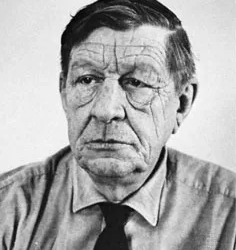
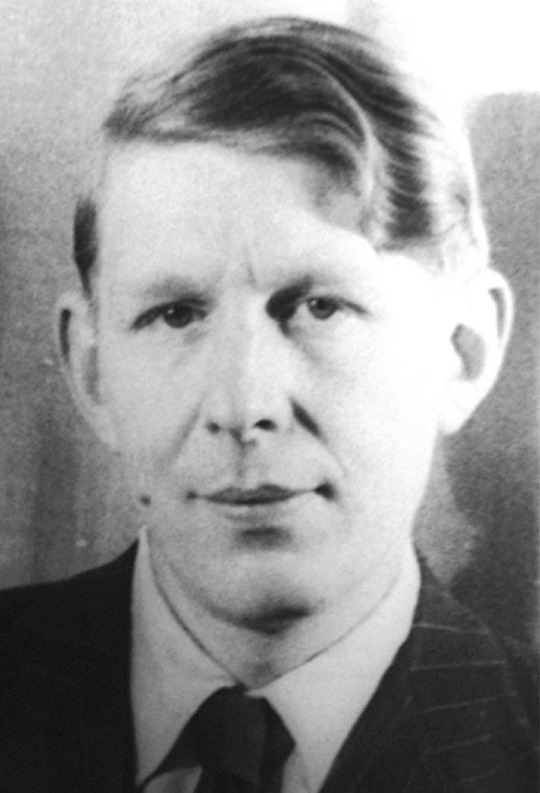
W.H. Auden
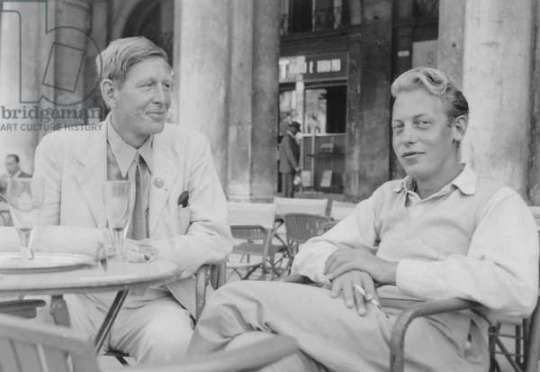
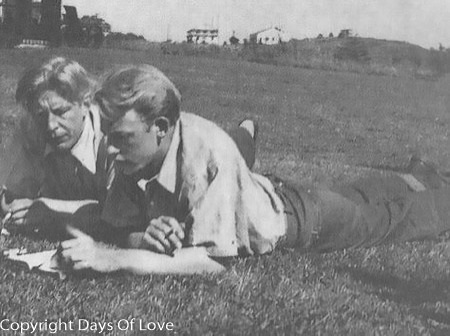
W.H. Auden with Chester Kallman
@l0v3c0r3e you better read this or istg 👹
#the last photo is so pretty <3#even if its not actually chester with auden its still pretty#im pretty sure its auden tho#looks like him#wh auden#chester kallman#erika mann#gay poets#gay history#queer history#gay literature#gay poems#goodness gracious
24 notes
·
View notes
Note
Hello! If you're still accepting matchup requests, may I ask for a Bungo Stray Dogs/My Hero Academia matchup?
Pronouns: she/her- but I will answer to anything, idgaf
Sexuality: Bisexual-if you're hot, I'd hit it, no discrimination here
Zodiac/MBTI: Aquarius/ENTP
Appearance: 5'6", overweight, shoulder length brown hair and bangs but also wear a bun on top of my head a lot, pale w/ freckles, ears like fricken dumbo, I swear
Personality: Pretty logic based but I enjoy theoretical conversations. I've been told I'm outgoing and friendly, which I find amusing because I am very cynical and sarcastic. I'm a bit of an arse if I enjoy a person. Gentle ribbing is how I show love. I'm not great with emotion and I find myself faking most of them, but it is something I'm working on. Oh yeah, I talk a lot, probably too much as you can see.
Likes: Neuroscience, Video Games, horror movies, crime podcasts, unicorns, anime(obviously), theoretical discussion, talking about religion and politics
Dislikes: Black and white thinking, extreme views, mushrooms, olives (except when they're stuffed with pimento), inefficient rules/procedures, romance movies, aye-ayes
Hobbies: Cooking/Baking, Reading research papers, taking dumb online quizzes, making puns, singing(not well), playing with animals
Currently work in engineering, but I hate mechanical things. Lol
Side Note: I always fall for villains, I can't help it. Good guys are usually written as though they have the moral high ground, but there's always room for some healthy shades of gray. However, I don't hate good guys either. Everyone has good and bad traits at the end of the day. You just pick whose bs you're willing to deal with. Lol Also, thank you for taking the time to do all of this! You're the bomb.com!! Sorry that I ramble so much! Have a lovely day!
Hi! Thank you for your request! Sorry it took a while. I hope you like your matchups!
In Bungo Stray Dogs, I match you with...

You and Chuuya are a formidable pair with the combined force of your sarcasm. But your friendliness balances out his stand-offish nature.
He’s also not great with emotions so you can work on that together. Because you both know you struggle with emotions, you’re able to be more patient with each other.
As a result of this as well, there’s probably a lot of gentle ribbing in your relationship. Others may think it’s a strange relationship. But it works for the two of you and that’s all that matters.
He would love listening to crime podcasts. He finds them interesting (as long as he doesn’t hear any of his own crimes in there…).
Your puns exhaust Chuuya so much. But he’s never going to tell you to stop. Your puns are the highlight of his day. He just has a reputation to uphold.
Speaking of his reputation, he has sworn you to secrecy but he knows all the best places around town to see animals Whether they’re stray cats, dogs in pet shops, or pigeons in parks, he has an innate knowledge of where to go to find animals.
In My Hero Academia, I match you with...

Todoroki loves baking with you. Cooking not so much but if you ask him to join you in the kitchen making a fresh batch of cookies, he’s grabbing an apron and getting out all the ingredients you need.
Another one who loves crime podcasts! He would love to listen to the same podcast as you throughout the day and then talk about it that night.
I think Todoroki is impartial to horror movies. He’ll watch them and enjoy them but it’s not something he’ll seek out.
Surprisingly good at not getting freaked out while watching them. If anything, he’s more likely to fall asleep during a horror movie than jump off the couch at every jumpscare.
Much like Chuuya, Todoroki is not great with emotions so he knows how you feel most of the time. He’s not good at faking emotions though so any emotions he does express are genuine.
Secretly loves your sarcasm and cynical nature. He thinks it balances out your friendliness nicely. It makes you more interesting.
#writing#fanfic#matchup#matchup request#request#bungo stray dogs#chuuya nakahara#my hero academia#shoto todoroki
3 notes
·
View notes
Text
Impressions of ‘A City that Never Sleeps’ (NY by Night Season 2 Episode 1)
Less of a full summary this time around, more just thoughts and a smidgeon of analysis.
A new night in New York, and a new group of Kindred. We move away from the rough streets and Anarch freedoms and confusions, and we move over into the glittering world of the Camarilla, where everything is a guilded cage, beautiful but restricting. The fashion is immediately different as well. All the characters are impeccably dressed, with one glaring exception, and they all move and talk as if they either own the world or are just waiting in line for their turn to do so.
It’s smart to set such a different vibe, to create a sense of the divisions in the city, the sense of haves and have-nots, but also of freedom and restriction. In the Camarilla far more than the Anarchs, appearances are deceiving, and despite all the characters but Brawn dressing the part of Camarilla political animals, only one of them really plays the part.
Khalida is our first big surprise of the game, and the first indication of exactly how closely tied this new coterie really is to our favorite Anarch disasters. Specifically, it turns out that Fuego is not Rafferty’s only childe. Khalida is far better at playing the dutiful childe, sweet and respectful and always willing to do what she’s told. She and Rafferty at least seems superficially close, but given Ventrue politics, it may only be skin deep. After they’re away from Rafferty she certainly seems much more afraid of him than she let on in his presence, which may speak to a rougher relationship than they displayed in company. It seems at least possible that Khalida is bonded to Rafferty in a similar way to Fuego, or is only just beginning to break that bond, and fears his power over her.
Kiem initially comes across as young and impressionable. She says she’s new to town, just settled in, and her sire is apparently friends with Rafferty, hence why she’s been summoned to his jazz club. She talks about wanting a mission. She also talks about faith, and it seems that, while Coco apes religion more as a means of control, Kiem is a true believer. Later in the episode in the gallery, she views the paintings as demonic. She has to destroy them and destroy Lizzie for painting them. It seems almost compulsive. And despite her appearance and initial impression, she also seems to be built to brawl. Her specialty is in grappling, and she’s both fast and very strong. It’s not a traditional Toreador build, but it does put one in mind of Qadir, the Toreador sherrif of New York. One wonders if they’re acquainted, or even if he’s her sire. She doesn’t talk a lot about her sire, and so far their relationship seems neutral. She seems eager to settle in and find her place in the Camarilla, but she’s also interesting in that she seems like the first to really question if the restrictions placed on them by the Camarilla are worth the apparent benefits. Something tells me there is more conflict in her than I first thought.
She also apparently has a thing for earlobes? I have no idea what that means.
Brawn is the definitely the most obvious odd one out for this coterie. He plays the part of the dumb thug, again a departure from the ‘clever spy’ trope that Nosferatu often lean into. However, the clan compulsion to know secrets still seems to be there, and when Rafferty mentions that he doesn’t know the Anarch numbers in the city but wants to, Brawn visibly perks up.
He’s also perhaps the most overtly funny of the group. His one-liners are fantastic, his comments to everyone were some of my favorite of the evening, and several of his lines made me laugh out loud (“I like art, and am called Brawn.”). His sire is called Glass Jaw, a fearsome kindred that runs an underground fighting ring. And Brawn is clearly no slouch there either, giving Airbox a run for his money as they tangled at the gallery.
And Coco? She seems the most obviously contradictory. Her appearance says ‘perfect Camarilla kindred’, and during her bestial failure she openly tried to show up all the others by reciting the six traditions first. She seems reluctant to engage with them or take much interest in them beyond their working relationship. As Brawn and Kiem fought Lizzie and Airbox, she elected to leave to go after Argus and Angela, leaving her alone to tangle with an older, stronger vampire. She clearly prefers hanging in the shadows, collecting information, and dealing with her problems with her powers, rather than socially engaging. She also apparently doesn’t sound as she’s coming across in to the others in New York. While she speaks with the Coterie and with Argus, her accent is American, but she takes on something that sounds very different when speaking with her Beast. I’m not sure which accent it is—I didn’t hear it for long enough to pin it down—but it suggests she traveled some distance to get to New York, and no wonder. It’s one of the few cities where the Lasombra are accepted in the Camarilla, and she seems to want that badly.
Rafferty, meanwhile, seems to be playing the new Richter for this season. Interestingly, he doesn’t sound at all like he does in Fuego’s head. He’s a bit colder, a lot more pragmatic and uninspiring than Fuego remembers him. Khalida hears him far more clearly in her head, and seems to have a better understanding of him. He’s preoccupied with the Anarchs, noting that, while they put on a strong front, the Cam are worried about the numbers and strength of the Anarchs now that Torque is in charge. This may or may not be impacted by Rey’s actions in the penultimate episode of last season, and whether or not Lavash brought Rey’s claims to Rafferty’s attention. It definitely has something to do with the rumors that Annabelle has come to town looking to stir up a fight in a city that has, more or less, remained peaceful and stable for several decades.
He also acts as a teacher, more pedantic and direct than Richter. This is a nice way to emphasize that the Camarilla are less free, but generally better taught than the piecemeal education of the Anarchs. They run through the six traditions, which Coco preempts, and once the ground rules are laid down, Rafferty charges them with investigating a gallery. If they succeed he will give them a boon, and I imagine they might get domain somewhere.
The Gallery heist emphasizes several things. First, it clearly demonstrates everyone’s skills and weaknesses. Khalida is a great controller and manipulator, but not a fighter. Coco prefers to stick to the shadows, but also goes off on her own and might get in over her head without noticing. Brawn is incredibly tough, giving Airbox far more of a run for his money than Rey managed, but he’s also not at all bright. And Kiem is also very tough, but has very little self-control and tends to fly off the handle. I didn’t expect her to so closely parallel Rey, but there we are.
It’s difficult not to draw comparisons between the two coteries and the two seasons. The Camarilla has a drastically different vibe than the Anarchs. The Anarchs are scrappy and poorly organized. The coterie is necessary in large part because they are all so vulnerable, many don’t know their sires, and kindred like Isaac have to pass on what little information they have to those with even less. There is a sense of desperation and living on the edge in the Bronx that is, at least on the surface, not there in Manhattan. Like at the beginning in his description of Manhattan and the jazz club, there is an emphasis on beauty and opulence on this side of the river. Brawn stands out in Manhattan, while in the Bronx no one would bat an eye at how he dresses. The others know better how to play the game, and lean into high fashion and a sense that they are better than everyone around them. The ambition is more naked. Everyone there seems to act either like they own the world, or that they’re in line to do so and very ready to shiv the person in front of them.
It’s an interesting contrast, but it also means that which setting you prefer will likely influence which season you prefer. I’ve always enjoyed the scrappy underdogs, so I love the Anarchs in this setting. The new actors this season are very good across the board, but the characters don’t grip me as immediately as Serif, Rey, Fuego, and Isaac did. I think they could, after a time getting to know them, but I perhaps don’t have the immediate and visceral love of them that I did the other coterie.
And the seasons are almost immediately crossing over, with appearances not only from mentioned characters like Rafferty, but also known quantities like Lizzie, Airbox, Argus, and Alicia. This is a living city with factions crossing streams and bouncing back and forth far more than either would care to admit. It’s possible we’re setting up the crossover for season 3 already, showing that the Camarilla and the Anarchs could be a united front with free movement, if they felt like it. Or at least there is more in common there than different, and they could be pushed together with external impetus.
But bringing in so much from last season right away also creates a sort of tension in me. While I may not be too attached to Airbox and Lizzie, I have seen them multiple times. I want to see more Lizzie interactions. I’ve seen Airbox put Rey through a window (and he does it again here, as it’s apparently his favorite move). So I wasn’t as clearly rooting for the new coterie to beat them in the gallery fight. I found myself wanting Airbox and Lizzie to escape, and our new coterie to start the season with a defeat rather than a victory. Likewise, I definitely didn’t want Coco harming Argus and Alicia before Serif has a chance to deal with things herself.
At the same time, I appreciate how dynamic the world is. Serif may have to deal with a completely different situation than she expected if Coco hurts Argus or Alicia. I also found it interesting that it was Serif whose name was the first to really come up this season. Not Isaac, with his ‘Sabbat’ connections, not Rey who wants to join the Camarilla, not Fuego with her identical ties to Rafferty as Khalida. But Serif. The one no one the Camarilla had never even heard of. I like that choice, as it’s an unexpected first bridge. I’m sure the others will be dragged in as well, but having her be first is fascinating.
We’re setting up season 3 to be a very different landscape than the one we left in the minivan at the end of season 1. All the players are still on the board, still very active and still getting into trouble and danger. Things won’t pause for Serif’s sire or her mother, nor will they pause for Lizzie, Airbox, and all the other secondary characters we met last season. So it makes an exciting question as to what both coteries are hurtling toward.
One another, of course, but how? Will they be antagonistic, or will they work together? We’re already seeing parallels, even at the surface glance we’ve gotten for this new coterie. Kiem and Rey seem like they’d have a lot weirdly in common. Brawn and Isaac both feel like the odd man out, while Isaac and Coco have the ex-Sabbat clans thing in common. I can’t even imagine what Khalida and Fuego might be like together. Or Coco and Serif, both drawn to the shadows and to unseen powers. There are a lot of potentially interesting dynamics being set up.
But in the meantime, I do want to get to know this new coterie. The Camarilla are far more about masks and politeness than the Anarchs, so we get less of an open and honest look at these kindred right away. Will they manage to be friends? Just coworkers? Something else unexpected? What lies beneath the polite masks (or the thug’s mask that Brawn wears)? I am looking forward to finding out, and seeing how the story continues to intertwine until this coterie and our Anarch coterie are thrown onto a collision course.
13 notes
·
View notes
Text
In late 2020, Jack Ma, who had been one of China's most high-profile and successful businessmen, disappeared from public view for several months after he made critical comments about China's financial system and its regulators. He had spoken at a conference in Shanghai in October 2020, where he criticized China's regulatory system and compared it to an "old people's club."
Soon after his remarks, Chinese regulators suspended the planned initial public offering (IPO) of Ant Group, an online finance company that Ma had co-founded. The IPO, which would have been the world's largest ever, was worth an estimated $35 billion. Since then, Ma has largely remained out of the public eye.
It is not clear what caused Ma's disappearance or what the current status of his relationship with the Chinese government is. However, the incident highlighted the risks of criticizing the Chinese government and its regulatory policies, particularly for high-profile individuals and businesses.
Monday, 1st of March 2021 , Entry into the world of exile. (1)
I never went along with the idolization of the masses, not even in those times when I still pretended to believe in [the government’s] political theories. (2)
Now ousted and in exile out of sight, [I] was called to the city of Krakow (3); A city that attributes its founding to the mythical ruler of Krakus.
As I open my letter of invitation, it only reads this: more cityness in the city.
[…] While I rode in the night train I had a feeling of great grief, but in my heart of hearts I could not be mournful, and this for a strange reason: during the entire journey I continually heard dance music, laughter, and jollity, as though a wedding were being celebrated. (5)
It is through, and not despite, our alienated condition that we can free ourselves from the muck of immediacy. (6)
Its funny to look back and see how far I’ve come. Back in my younger years, when I proved the internet existed in China, I was often told: “Just drop that fool delusion that you're better than everybody else and go to work. In a year, you'll have an office that'll make you blush to think of this dump. You'll have people running after you, you'll have clients, you'll have friends, you'll have an army of [people] to order around!”. Hell! […] What can it mean to me? But this time I'm not fishing for anything for myself,(4)
The persistence of the present concentric obsession makes us all bridge and tunnel people, second class citizens in our own civilization, disenfranchised by the dumb coincidence of our collective exile from the [light]. (3)
And so when I saw [my invitation to Krakow], the approach seems on the contrary to be an almost aristocratic exile, not connected to democracy, but more an exile to the [shackles of law, which all of us have been conditioned to partake in]. (8)
Nothing can be more real, or concern us more, than our own sentiments of pleasure and uneasiness; and if these be favourable to virtue, and unfavourable to vice, no more can be requisite to the regulation of our conduct and behaviour. (9)
[Its understandable] how much may be effected this way, if you observe how even wild beasts grow tame by dwelling among us, and how no animal, however ferocious, continues to be wild, if it has long been accustomed to [world’s] companionship: all its savageness becomes softened, and amid peaceful scenes is gradually forgotten. (10)
It has alienated all its rights to the [law], who is, therefore, absolute master. (11)
From birth we are conditioned to “good behavior”. Our view towards the world is shaped by external influences, education and beliefs. We are shaped. We are encouraged to behave in balance with the law. In balance with the absolute master. We become merely puppets on the stage that is already set for us. Not only by regulation, by law, but also by religions, by superstitions and by myth.
When the guardians of morality perform a great tragedy […] and then believe that therefore the world is no longer in order and the great law of the gods and humankind is in danger, then kynical satire first admonishes us to stay calm. Let us see whether that is really so bad! Who is really harmed by this copulation that goes against the regulations? Only the naive illusion of law. How would it be, however, if human beings did not have to serve the law, but the law had to serve human beings? (2)
Tuesday, 2nd of March 2021, KrakOW — What nOW?
Alas, I have taken my first stroll through Krakow.
Back in China, I have become somewhat of a myth, just as the likes of Jeff Bezos or Mark Zuckerberg. But here, I am merely a migrant. Alienated to my surrounding, to the people and the places here.
We can be alienated from home (exile), from a fictitious world (in the theatre, in the arts), from ourselves. (13)
When I look around myself, as I explore the city, it already has everything a city needs. Maybe controversial, but the city is both Babylon, the place of alienation, exile, estrangement and violence, and Jerusalem, the place where Gods dwell, […], and invites humankind to peace. (4) Eradicating the negative would be comparable to putting a plaster over a gushing wound.
But then, what does cityness entail?
Walking amongst the masses and seeing all the houses of gods erected around me, all I can observe is that people, strangely enough move in the same rhythms, praying to the gods and performing their daily rituals ceremonies without questioning. It is as though life is a theatre, and everyone plays the part they are given. “Just drop that fool delusion that you're better than everybody else and go to work” (4). The worker (us) exchanges for a wage the power to determine what they will produce, how and when they will produce it, as well as ownership and control over the product of their labor. (14) And the same applies to our social hierarchy, all observing the strict etiquette […], and all organized according to their place in the hierarchy. (15) Humans are conditioned to stick to the rules and laws of life, like a dancer that practices the same choreography over and over again.
What if, [we] imagine the same scene, but [we] learned how to dance the night before; [we become] all too conscious of [our] feet. (16) We become too conscious of ourselves, because we haven’t learned to forget the constraints that shaped us through our entire lives.
That’s what differentiates the mediocre human from Jeff Bezos or Elon Musk, or even myself. We are beasts. We just do. In my case however, the government that banished me from my own home, was the bigger beast.
An animal doesn’t practice before it hunts, it just hunts using its instinct. The emphasis is on animality, the animal side and animal basis of human existence. (2)
And, lest we forget, the animal is not “The Animal,” but the principle of animality that belongs entirely to human culture (12), that is encoded in all of our DNAs. Embracing the animal beast within us entails us to forget the laws (the great masters, the great god or whatever one wants to call it) that hold us back from our fullest potential.
That’s it! The problem doesn’t lie in the city itself, but the people living in it.
Wednesday, 3rd of March 2021, Mounding the genesis
This city is surrounded by so much myth. From all the churches and synagogues to the Mound Krakus.
So although I don’t try to imitate […] the language [of the gods], I can get a feeling for something of the imaginary, something of the mythical world of these characters; a secret ground in which I [will reinvent Krakow]. (20) Particularly on Mount Krakus, where the legend of Krakow’s founding took place on. Symbolically, forgetting will be celebrated on the mound, the very mound where the myth was born.
As I was observing some men working on a dragon sculpture, I discovered from a local, that in three months time the people of Krakow celebrate the Dragon Parade; simply said, they celebrate the slaying of the dragon, the slaying of the beast— the very event that founded this city. It’s a funny though, that the celebration revolves around the killing of the animal, the very essence what makes us human.
Symbolically, forgetting will be celebrated on the mound, the very mound where the myth was born.
Sunday, 7th of March 2021, Going back to the roots.
I’ve taken a few days to adjust myself to this city. Although I can move freely, without anyone suspecting who I am, I still feel like a myth to the rest of the world, a hidden god that moves in the shadows. This isn’t who I want to be.
Back in my homeland I tried to convince the people that everyone can become their own god. But of course, with the ever so controlling government, that message didn’t really deliver well.. I get it now. I can’t convince the people they can be like me. They have to believe it themselves, they have to embody it and be it.
Unless the myth is exposed.. unless I am exposed.. the magic of being animal, of listening to nothing but your own instincts, your own body, your own rhythms, it will only remain a concept that all the gods write about, that people willingly and unquestioningly follow and worship. The feeling of security in a “city full of gods" [provided by the old cosmological mythical religions] is lost with the gods themselves; when the world is de-divinized, communication with the world transcendent God is reduced to the tenuous bond of faith, […] as the substance of things hoped for and the proof of things unseen. (19)
What I’m trying to say is that we are all gods. But we forgot how to be gods. Its in our DNA. […] Once [our memory] has been "decoded”, [once we do the animality within us justice], [our potential] will jump into action. (17) We need to go back to our roots. Unleash the beastly gods within us.
Only when we are all gods within the city, will the city truly flourish.
But I can’t be the one to convince the people of this. That was the mistake I did back home. Gods aren’t appointed by people. No, gods exist. I must expose the myth of myself, the myth of Jack Ma and the myth of the beast that has been regulated for so long. Once this concept of the myth is graspable for the human, only then will he be willing to forget and therefore unlock the memory of the beastly god within them.
Forget what? Forget the laws, forget the biases, the rules that rule our our entire lives. We are beasts that have to follow a grid. No, now is the time the beast follows the beast, to listen to our own bodies, our own rhythms and respect the rituals that do our instincts justice. […] This belief needed to be justified: one needed to have the belief for the right reasons. (18)
(1) Corbin, Temple and Contemplation
(2) Sloterdijk, Critique of Cynical Reason
(3) Hovestadt Buehlmann, Quantum City
(4) Gorringe, A Theology of the Built Environment
(5) Jung, Memories Dreams Reflections
(6) Burrows, Fictioning
(7) Rand, The Fountainhead
(8) Koolhaas Obrist, Project Japan
(9) Hume, A Treatise of Human Nature
(10) Seneca, Complete Works
(11) Rousseau, Collected Works of Jean-Jacques Rousseau
(12) Hays, Architecture Theory since 1968
(13) Braidotti Hlavajova, Posthuman Glossary
(14) Zimring, Encyclopedia of Consumption and Waste
(15) Kuhl, 50 Buildings You Should Know
(16) Negroponte, Being Digital
(17) Hofstadter, Godel Escher Bach
(18) Wilson, Aesthesis and Perceptronium
(19) Voegelin, Order and History 5
(20) Cixous, White Ink
0 notes
Note
ok so I’mma ask a really dumb question. What do you mean when you say that you can tell that German wasn’t a good subject for Seb in school? I’m assuming it’s something in -how- he’s speaking? Is that a big deal in school? For me as a usamerican, public speaking or formal speaking isn’t much taught unless it’s for a particular vocation, so people usually don’t speak in that way.
not a dumb question at all! also esp other germans, feel free to discuss/add your point of view
so first off the education system in germany is a ~huge~ mess because our federal states all manage education separately which leads to really big discrepancies in the value of your final exams (it's way easier to get full marks in some states than others etc and unis then have to accommodate to that, it's among other things something that adds to the rift between former East and West Germany) and not only that, it even varies within the federal states because the schools are funded by the idk the english equivalent, i guess you could say counties? so i can only truly speak about my experiences (but the subjects are still more or less centralized and vary mostly in the depth theyre gone into with)
In Seb's case, he often struggles to express himself clearly in German, uses examples and often repeats sentences/sentence fragments that he seems comfortable with. He often leaves thoughts unfinished and although he's quite eloquent when he knows what he wants to say his words get more 'simple' when he gets stuck explaining himself and talks in what a German teacher would consider 'bad style'. Funnily enough, he's more eloquent (/consistent in his level of eloquence) in English, probably both due to it being his second language and that he uses it a lot more in a professional context where it's extremely important to report back to the team clearly. It's important to note though that the people interviewing Seb are excellent at German (or English) and often studied journalism so it's very noticeable while it probably would be less so in a discussion with people whose profession isn't tied to eloquence.
That said, i do feel like there's a lot of value placed on properly expressing yourself throughout all subjects. In German class (and also second and third languages, in my case English and French) you write a lot of argumentative essays and have mock debates and class discussions. There's of course a lot of literary analysis but that still comes around to expressing yourself concisely and clearly. We don't explicitly have public speaking in German class but the mock discussions are (or at least were at my school) held not only in German class but also in Politics class, Geography and Economics class, Religion/Ethics class (the subject differs depending on if you're protestant or catholic or a different confession/religion/not religious but the topics are largely the same, ethics, morality, the world religions) and to an extent in History class. Also a lot of schools have project weeks where you have a model parliament debate, be it model UN or EU or whatever which is pretty cool.
To get back to German class though, it's one of the core subjects in the education system for most of your school career (when i finished school even more so than now because the education system ~in my federal state~ changed right after i graduated) together with the languages you learn and math and a lot of the skills from german class transfer over to subjects that get less hours/week.
Tl;dr: German class is definitely (among other things) putting a focus on teaching students how to be effectively argumentative both in written and spoken word and Seb often speaks German a bit clumsily and in simple(r) terms (than those around him).
#anon ask#this was enjoyable to write :D#although im far from being an expert at rhetorics you gotta go to my friend for that 😅#also that doesn't mean that seb wouldn't be a worthy opponent in a debate#he still sounds like someone you can have a really fun argument with#and as someone who loves having fun arguments with friends id love to invite him for an evening with my besties#choose a random topic and get heated over it while still being ✨sophisticated✨#sebastian vettel
120 notes
·
View notes
Text
Anonymous asked: I enjoyed reading your posts about Napoleon’s death and it’s quite timely given its the 200th anniversary of his death this year in May. I was wondering, because you know a lot about military history (your served right? That’s cool to fly combat helicopters) and you live in France but aren’t French, what your take was on Napoleon and how do the French view him? Do they hail him as a hero or do they like others see him like a Hitler or a Stalin? Do you see him as a hero or a villain of history?
5 May 1821 was a memorable date because Napoleon, one of the most iconic figures in world history, died while in bitter exile on a remote island in the South Atlantic Ocean. Napoleon Bonaparte, as you know rose from obscure soldier to a kind of new Caesar, and yet he remains a uniquely controversial figure to this day especially in France. You raise interesting questions about Napoleon and his legacy. If I may reframe your questions in another way. Should we think of him as a flawed but essentially heroic visionary who changed Europe for the better? Or was he simply a military dictator, whose cult of personality and lust for power set a template for the likes of Hitler?

However one chooses to answer this question can we just - to get this out of the way - simply and definitively say that Napoleon was not Hitler. Not even close. No offence intended to you but this is just dumb ahistorical thinking and it’s a lazy lie. This comparison was made by some in the horrid aftermath of the Second World War but only held little currency for only a short time thereafter. Obviously that view didn’t exist before Hitler in the 19th Century and these days I don’t know any serious historian who takes that comparison seriously.
I confess I don’t have a definitive answer if he was a hero or a villain one way or the other because Napoleon has really left a very complicated legacy. It really depends on where you’re coming from.
As a staunch Brit I do take pride in Britain’s victorious war against Napoleonic France - and in a good natured way rubbing it in the noses of French friends at every opportunity I get because it’s in our cultural DNA and it’s bloody good fun (why else would we make Waterloo train station the London terminus of the Eurostar international rail service from its opening in 1994? Or why hang a huge gilded portrait of the Duke of Wellington as the first thing that greets any visitor to the residence of the British ambassador at the British Embassy?). On a personal level I take special pride in knowing my family ancestors did their bit on the battlefield to fight against Napoleon during those tumultuous times. However, as an ex-combat veteran who studied Napoleonic warfare with fan girl enthusiasm, I have huge respect for Napoleon as a brilliant military commander. And to makes things more weird, as a Francophile resident of who loves living and working in France (and my partner is French) I have a grudging but growing regard for Napoleon’s political and cultural legacy, especially when I consider the current dross of political mediocrity on both the political left and the right. So for me it’s a complicated issue how I feel about Napoleon, the man, the soldier, and the political leader.
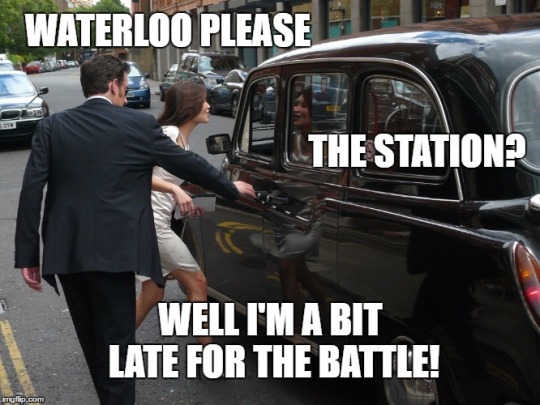
If it’s not so straightforward for me to answer the for/against Napoleon question then it It’s especially true for the French, who even after 200 years, still have fiercely divided opinions about Napoleon and his legacy - but intriguingly, not always in clear cut ways.
I only have to think about my French neighbours in my apartment building to see how divisive Napoleon the man and his legacy is. Over the past year or so of the Covid lockdown we’ve all gotten to know each other better and we help each other. Over the Covid year we’ve gathered in the inner courtyard for a buffet and just lifted each other spirits up.
One of my neighbours, a crusty old ex-general in the army who has an enviable collection of military history books that I steal, liberate, borrow, often discuss military figures in history like Napoleon over our regular games of chess and a glass of wine. He is from very old aristocracy of the ancien regime and whose family suffered at the hands of ‘madame guillotine’ during the French Revolution. They lost everything. He has mixed emotions about Napoleon himself as an old fashioned monarchist. As a military man he naturally admires the man and the military genius but he despises the secularisation that the French Revolution ushered in as well as the rise of the haute bourgeois as middle managers and bureaucrats by the displacement of the aristocracy.
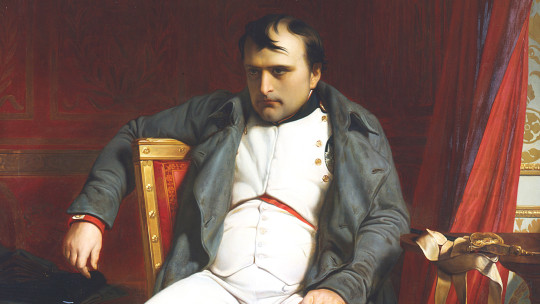
Another retired widowed neighbour I am close to, and with whom I cook with often and discuss art, is an active arts patron and ex-art gallery owner from a very wealthy family that came from the new Napoleonic aristocracy - ie the aristocracy of the Napoleonic era that Napoleon put in place - but she is dismissive of such titles and baubles. She’s a staunch Republican but is happy to concede she is grateful for Napoleon in bringing order out of chaos. She recognises her own ambivalence when she says she dislikes him for reintroducing slavery in the French colonies but also praises him for firmly supporting Paris’s famed Comédie-Française of which she was a past patron.
Another French neighbour, a senior civil servant in the Elysée, is quite dismissive of Napoleon as a war monger but is grudgingly grateful for civil institutions and schools that Napoleon established and which remain in place today.
My other neighbours - whether they be French families or foreign expats like myself - have similarly divisive and complicated attitudes towards Napoleon.

In 2010 an opinion poll in France asked who was the most important man in French history. Napoleon came second, behind General Charles de Gaulle, who led France from exile during the German occupation in World War II and served as a postwar president.
The split in French opinion is closely mirrored in political circles. The divide is generally down political party lines. On the left, there's the 'black legend' of Bonaparte as an ogre. On the right, there is the 'golden legend' of a strong leader who created durable institutions.
Jacques-Olivier Boudon, a history professor at Paris-Sorbonne University and president of the Napoléon Institute, once explained at a talk I attended that French public opinion has always remained deeply divided over Napoleon, with, on the one hand, those who admire the great man, the conqueror, the military leader and, on the other, those who see him as a bloodthirsty tyrant, the gravedigger of the revolution. Politicians in France, Boudon observed, rarely refer to Napoleon for fear of being accused of authoritarian temptations, or not being good Republicans.

On the left-wing of French politics, former prime minister Lionel Jospin penned a controversial best selling book entitled “the Napoleonic Evil” in which he accused the emperor of “perverting the ideas of the Revolution” and imposing “a form of extreme domination”, “despotism” and “a police state” on the French people. He wrote Napoleon was "an obvious failure" - bad for France and the rest of Europe. When he was booted out into final exile, France was isolated, beaten, occupied, dominated, hated and smaller than before. What's more, Napoleon smothered the forces of emancipation awakened by the French and American revolutions and enabled the survival and restoration of monarchies. Some of the legacies with which Napoleon is credited, including the Civil Code, the comprehensive legal system replacing a hodgepodge of feudal laws, were proposed during the revolution, Jospin argued, though he acknowledges that Napoleon actually delivered them, but up to a point, "He guaranteed some principles of the revolution and, at the same time, changed its course, finished it and betrayed it," For instance, Napoleon reintroduced slavery in French colonies, revived a system that allowed the rich to dodge conscription in the military and did nothing to advance gender equality.
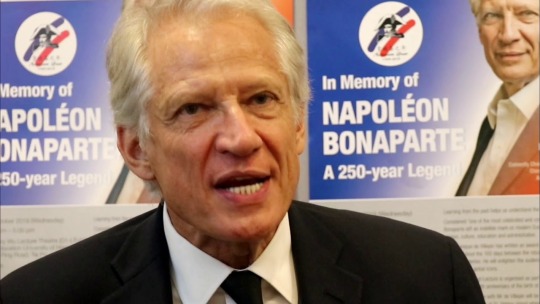
At the other end of the spectrum have been former right-wing prime minister Dominique de Villepin, an aristocrat who was once fancied as a future President, a passionate collector of Napoleonic memorabilia, and author of several works on the subject. As a Napoleonic enthusiast he tells a different story. Napoleon was a saviour of France. If there had been no Napoleon, the Republic would not have survived. Advocates like de Villepin point to Napoleon’s undoubted achievements: the Civil Code, the Council of State, the Bank of France, the National Audit office, a centralised and coherent administrative system, lycées, universities, centres of advanced learning known as école normale, chambers of commerce, the metric system, and an honours system based on merit (which France has to this day). He restored the Catholic faith as the state faith but allowed for the freedom of religion for other faiths including Protestantism and Judaism. These were ambitions unachieved during the chaos of the revolution. As it is, these Napoleonic institutions continue to function and underpin French society. Indeed, many were copied in countries conquered by Napoleon, such as Italy, Germany and Poland, and laid the foundations for the modern state.
Back in 2014, French politicians and institutions in particular were nervous in marking the 200th anniversary of Napoleon's exile. My neighbours and other French friends remember that the commemorations centred around the Chateau de Fontainebleau, the traditional home of the kings of France and was the scene where Napoleon said farewell to the Old Guard in the "White Horse Courtyard" (la cour du Cheval Blanc) at the Palace of Fontainebleau. (The courtyard has since been renamed the "Courtyard of Goodbyes".) By all accounts the occasion was very moving. The 1814 Treaty of Fontainebleau stripped Napoleon of his powers (but not his title as Emperor of the French) and sent him into exile on Elba. The cost of the Fontainebleau "farewell" and scores of related events over those three weekends was shouldered not by the central government in Paris but by the local château, a historic monument and UNESCO World Heritage site, and the town of Fontainebleau.
While the 200th anniversary of the French Revolution that toppled the monarchy and delivered thousands to death by guillotine was officially celebrated in 1989, Napoleonic anniversaries are neither officially marked nor celebrated. For example, over a decade ago, the president and prime minister - at the time, Jacques Chirac and Dominque de Villepin - boycotted a ceremony marking the 200th anniversary of the battle of Austerlitz, Napoleon's greatest military victory. Both men were known admirers of Napoleon and yet political calculation and optics (as media spin doctors say) stopped them from fully honouring Napoleon’s crowning military glory.
Optics is everything. The division of opinion in France is perhaps best reflected in the fact that, in a city not shy of naming squares and streets after historical figures, there is not a single “Boulevard Napoleon” or “Place Napoleon” in Paris. On the streets of Paris, there are just two statues of Napoleon. One stands beneath the clock tower at Les Invalides (a military hospital), the other atop a column in the Place Vendôme. Napoleon's red marble tomb, in a crypt under the Invalides dome, is magnificent, perhaps because his remains were interred there during France's Second Empire, when his nephew, Napoleon III, was on the throne.
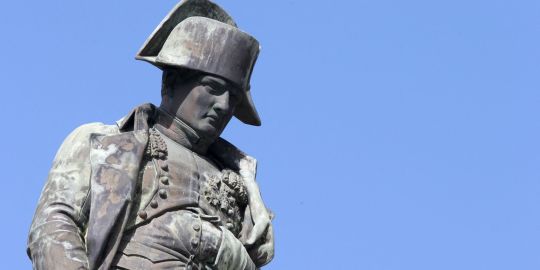
There are no squares, nor places, nor boulevards named for Napoleon but as far as I know there is one narrow street, the rue Bonaparte, running from the Luxembourg Gardens to the River Seine in the old Latin Quarter. And, that, too, is thanks to Napoleon III. For many, and I include myself, it’s a poor return by the city to the man who commissioned some of its most famous monuments, including the Arc de Triomphe and the Pont des Arts over the River Seine.
It's almost as if Napoleon Bonaparte is not part of the national story.
How Napoleon fits into that national story is something historians, French and non-French, have been grappling with ever since Napoleon died. The plain fact is Napoleon divides historians, what precisely he represents is deeply ambiguous and his political character is the subject of heated controversy. It’s hard for historians to sift through archival documents to make informed judgements and still struggle to separate the man from the myth.
One proof of this myth is in his immortality. After Hitler’s death, there was mostly an embarrassed silence; after Stalin’s, little but denunciation. But when Napoleon died on St Helena in 1821, much of Europe and the Americas could not help thinking of itself as a post-Napoleonic generation. His presence haunts the pages of Stendhal and Alfred de Vigny. In a striking and prescient phrase, Chateaubriand prophesied the “despotism of his memory”, a despotism of the fantastical that in many ways made Romanticism possible and that continues to this day.
The raw material for the future Napoleon myth was provided by one of his St Helena confidants, the Comte de las Cases, whose account of conversations with the great man came out shortly after his death and ran in repeated editions throughout the century. De las Cases somehow metamorphosed the erstwhile dictator into a herald of liberty, the emperor into a slayer of dynasties rather than the founder of his own. To the “great man” school of history Napoleon was grist to their mill, and his meteoric rise redefined the meaning of heroism in the modern world.
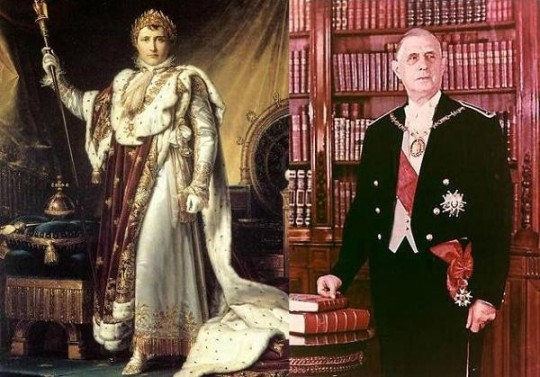
The Marxists, for all their dislike of great men, grappled endlessly with the meaning of the 18th Brumaire; indeed one of France’s most eminent Marxist historians, George Lefebvre, wrote what arguably remains the finest of all biographies of him.
It was on this already vast Napoleon literature, a rich terrain for the scholar of ideas, that the great Dutch historian Pieter Geyl was lecturing in 1940 when he was arrested and sent to Buchenwald. There he composed what became one of the classics of historiography, a seminal book entitled Napoleon: For and Against, which charted how generations of intellectuals had happily served up one Napoleon after another. Like those poor souls who crowded the lunatic asylums of mid-19th century France convinced that they were Napoleon, generations of historians and novelists simply could not get him out of their head.
The debate runs on today no less intensely than in the past. Post-Second World War Marxists would argue that he was not, in fact, revolutionary at all. Eric Hobsbawm, a notable British Marxist historian, argued that ‘Most-perhaps all- of his ideas were anticipated by the Revolution’ and that Napoleon’s sole legacy was to twist the ideals of the French Revolution, and make them ‘more conservative, hierarchical and authoritarian’.

This contrasts deeply with the view William Doyle holds of Napoleon. Doyle described Bonaparte as ‘the Revolution incarnate’ and saw Bonaparte’s humbling of Europe’s other powers, the ‘Ancien Regimes’, as a necessary precondition for the birth of the modern world. Whatever one thinks of Napoleon’s character, his sharp intellect is difficult to deny. Even Paul Schroeder, one of Napoleon’s most scathing critics, who condemned his conduct of foreign policy as a ‘criminal enterprise’ never denied Napoleon’s intellect. Schroder concluded that Bonaparte ‘had an extraordinary capacity for planning, decision making, memory, work, mastery of detail and leadership’. The question of whether Napoleon used his genius for the betterment or the detriment of the world, is the heart of the debate which surrounds him.
France's foremost Napoleonic scholar, Jean Tulard, put forward the thesis that Bonaparte was the architect of modern France. "And I would say also pâtissier [a cake and pastry maker] because of the administrative millefeuille that we inherited." Oddly enough, in North America the multilayered mille-feuille cake is called ‘a napoleon.’ Tulard’s works are essential reading of how French historians have come to tackle the question of Napoleon’s legacy. He takes the view that if Napoleon had not crushed a Royalist rebellion and seized power in 1799, the French monarchy and feudalism would have returned, Tulard has written. "Like Cincinnatus in ancient Rome, Napoleon wanted a dictatorship of public salvation. He gets all the power, and, when the project is finished, he returns to his plough." In the event, the old order was never restored in France. When Louis XVIII became emperor in 1814, he served as a constitutional monarch.
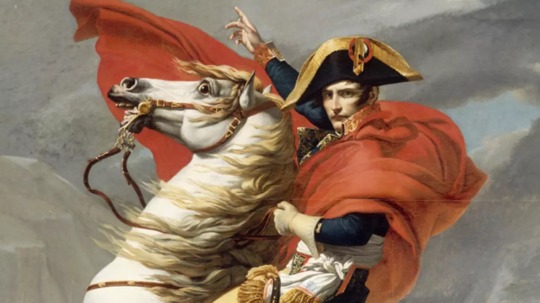
In England, until recently the views on Napoleon have traditionally less charitable and more cynical. Professor Christopher Clark, the notable Cambridge University European historian, has written. "Napoleon was not a French patriot - he was first a Corsican and later an imperial figure, a journey in which he bypassed any deep affiliation with the French nation," Clark believed Napoleon’s relationship with the French Revolution is deeply ambivalent.
Did he stabilise the revolutionary state or shut it down mercilessly? Clark believes Napoleon seems to have done both. Napoleon rejected democracy, he suffocated the representative dimension of politics, and he created a culture of courtly display. A month before crowning himself emperor, Napoleon sought approval for establishing an empire from the French in a plebiscite; 3,572,329 voted in favour, 2,567 against. If that landslide resembles an election in North Korea, well, this was no secret ballot. Each ‘yes’ or ‘no’ was recorded, along with the name and address of the voter. Evidently, an overwhelming majority knew which side their baguette was buttered on.
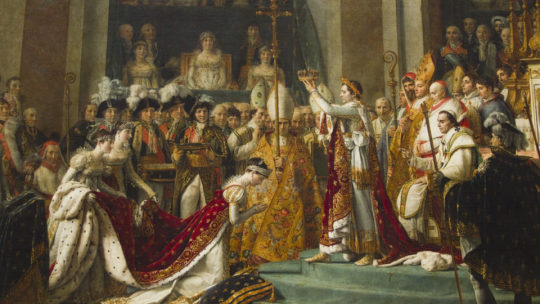
His extravagant coronation in Notre Dame in December 1804 cost 8.5 million francs (€6.5 million or $8.5 million in today's money). He made his brothers, sisters and stepchildren kings, queens, princes and princesses and created a Napoleonic aristocracy numbering 3,500. By any measure, it was a bizarre progression for someone often described as ‘a child of the Revolution.’ By crowning himself emperor, the genuine European kings who surrounded him were not convinced. Always a warrior first, he tried to represent himself as a Caesar, and he wears a Roman toga on the bas-reliefs in his tomb. His coronation crown, a laurel wreath made of gold, sent the same message. His icon, the eagle, was also borrowed from Rome. But Caesar's legitimacy depended on military victories. Ultimately, Napoleon suffered too many defeats.
These days Napoleon the man and his times remain very much in fashion and we are living through something of a new golden age of Napoleonic literature. Those historians who over the past decade or so have had fun denouncing him as the first totalitarian dictator seem to have it all wrong: no angel, to be sure, he ended up doing far more at far less cost than any modern despot. In his widely praised 2014 biography, Napoleon the Great, Andrew Roberts writes: “The ideas that underpin our modern world - meritocracy, equality before the law, property rights, religious toleration, modern secular education, sound finances, and so on - were championed, consolidated, codified and geographically extended by Napoleon. To them he added a rational and efficient local administration, an end to rural banditry, the encouragement of science and the arts, the abolition of feudalism and the greatest codification of laws since the fall of the Roman empire.”
Roberts partly bases his historical judgement on newly released historical documents about Napoleon that were only available in the past decade and has proved to be a boon for all Napoleonic scholars. Newly released 33,000 letters Napoleon wrote that still survive are now used extensively to illustrate the astonishing capacity that Napoleon had for compartmentalising his mind - he laid down the rules for a girls’ boarding school on the eve of the battle of Borodino, for example, and the regulations for Paris’s Comédie-Française while camped in the Kremlin. They also show Napoleon’s extraordinary capacity for micromanaging his empire: he would write to the prefect of Genoa telling him not to allow his mistress into his box at the theatre, and to a corporal of the 13th Line regiment warning him not to drink so much.
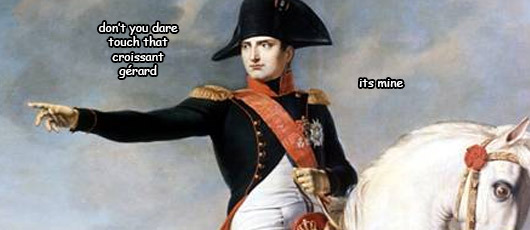
For me to have my own perspective on Napoleon is tough. The problem is that nothing with Napoleon is simple, and almost every aspect of his personality is a maddening paradox. He was a military genius who led disastrous campaigns. He was a liberal progressive who reinstated slavery in the French colonies. And take the French Revolution, which came just before Napoleon’s rise to power, his relationship with the French Revolution is deeply ambivalent. Did he stabilise it or shut it down? I agree with those British and French historians who now believe Napoleon seems to have done both.
On the one hand, Napoleon did bring order to a nation that had been drenched in blood in the years after the Revolution. The French people had endured the crackdown known as the 'Reign of Terror', which saw so many marched to the guillotine, as well as political instability, corruption, riots and general violence. Napoleon’s iron will managed to calm the chaos. But he also rubbished some of the core principles of the Revolution. A nation which had boldly brought down the monarchy had to watch as Napoleon crowned himself Emperor, with more power and pageantry than Louis XVI ever had. He also installed his relatives as royals across Europe, creating a new aristocracy. In the words of French politician and author Lionel Jospin, 'He guaranteed some principles of the Revolution and at the same time, changed its course, finished it and betrayed it.'
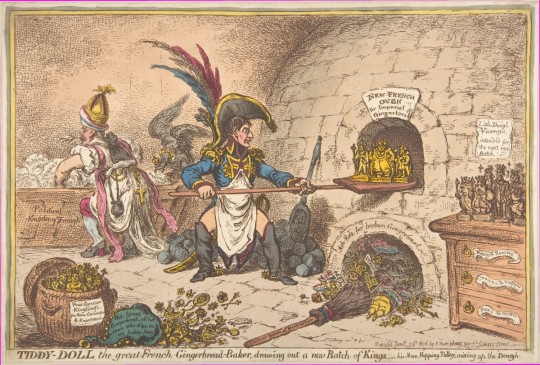
He also had a feared henchman in the form of Joseph Fouché, who ran a secret police network which instilled dread in the population. Napoleon’s spies were everywhere, stifling political opposition. Dozens of newspapers were suppressed or shut down. Books had to be submitted for approval to the Commission of Revision, which sounds like something straight out of George Orwell. Some would argue Hitler and Stalin followed this playbook perfectly.
But here come the contradictions. Napoleon also championed education for all, founding a network of schools. He championed the rights of the Jews. In the territories conquered by Napoleon, laws which kept Jews cooped up in ghettos were abolished. 'I will never accept any proposals that will obligate the Jewish people to leave France,' he once said, 'because to me the Jews are the same as any other citizen in our country.'
He also, crucially, developed the Napoleonic Code, a set of laws which replaced the messy, outdated feudal laws that had been used before. The Napoleonic Code clearly laid out civil laws and due processes, establishing a society based on merit and hard work, rather than privilege. It was rolled out far beyond France, and indisputably helped to modernise Europe. While it certainly had its flaws – women were ignored by its reforms, and were essentially regarded as the property of men – the Napoleonic Code is often brandished as the key evidence for Napoleon’s progressive credentials. In the words of historian Andrew Roberts, author of Napoleon the Great, 'the ideas that underpin our modern world… were championed by Napoleon'.
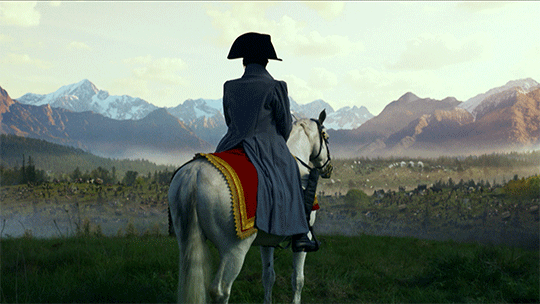
What about Napoleon’s battlefield exploits? If anything earns comparisons with Hitler, it’s Bonaparte’s apparent appetite for conquest. His forces tore down republics across Europe, and plundered works of art, much like the Nazis would later do. A rampant imperialist, Napoleon gleefully grabbed some of the greatest masterpieces of the Renaissance, and allegedly boasted, 'the whole of Rome is in Paris.'
Napoleon has long enjoyed a stellar reputation as a field commander – his capacities as a military strategist, his ability to read a battle, the painstaking detail with which he made sure that he cold muster a larger force than his adversary or took maximum advantage of the lie of the land – these are stuff of the military legend that has built up around him. It is not without its critics, of course, especially among those who have worked intensively on the later imperial campaigns, in the Peninsula, in Russia, or in the final days of the Empire at Waterloo.
Doubts about his judgment, and allegations of rashness, have been raised in the context of some of his victories, too, most notably, perhaps, at Marengo. But overall his reputation remains largely intact, and his military campaigns have been taught in the curricula of military academies from Saint-Cyr to Sandhurst, alongside such great tacticians as Alexander the Great and Hannibal.
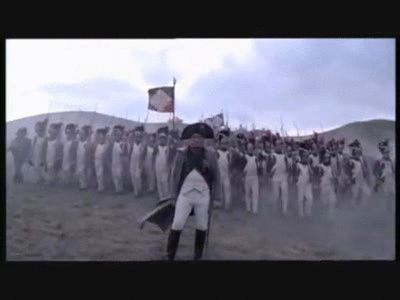
Historians may query his own immodest opinion that his presence on the battlefield was worth an extra forty thousand men to his cause, but it is clear that when he was not present (as he was not for most of the campaign in Spain) the French were wont to struggle. Napoleon understood the value of speed and surprise, but also of structures and loyalties. He reformed the army by introducing the corps system, and he understood military aspirations, rewarding his men with medals and honours; all of which helped ensure that he commanded exceptional levels of personal loyalty from his troops.
Yet, I do find it hard to side with the more staunch defenders of Napoleon who say his reputation as a war monger is to some extent due to British propaganda at the time. They will point out that the Napoleonic Wars, far from being Napoleon’s fault, were just a continuation of previous conflicts that arose thanks to the French Revolution. Napoleon, according to this analysis, inherited a messy situation, and his only real crime was to be very good at defeating enemies on the battlefield. I think that is really pushing things too far. I mean deciding to invade Spain and then Russia were his decisions to invade and conquer.
He was, by any measure, a genius of war. Even his nemesis the Duke of Wellington, when asked who the greatest general of his time was, replied: 'In this age, in past ages, in any age, Napoleon.'
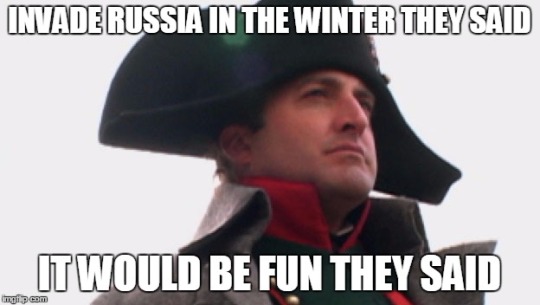
I will qualify all this and agree that Napoleon’s Russian campaign has been rightly held up as a fatal folly which killed so many of his men, but this blunder – epic as it was – should not be compared to Hitler’s wars of evil aggression. Most historians will agree that comparing the two men is horribly flattering to Hitler - a man fuelled by visceral, genocidal hate - and demeaning to Napoleon, who was a product of Enlightenment thinking and left a legacy that in many ways improved Europe.
Napoleon was, of course, no libertarian, and no pluralist. He would tolerate no opposition to his rule, and though it was politicians and civilians who imposed his reforms, the army was never far behind. But comparisons with twentieth-century dictators are well wide of the mark. While he insisted on obedience from those he administered, his ideology was based not on division or hatred, but on administrative efficiency and submission to the law. And the state he believed in remained stubbornly secular.
In Catholic southern Europe, of course, that was not an approach with which it was easy to acquiesce; and disorder, insurgency and partisan attacks can all be counted among the results. But these were principles on which the Emperor would not and could not give ground. If he had beliefs they were not religious or spiritual beliefs, but the secular creed of a man who never forgot that he owed both his military career and his meteoric political rise to the French Revolution, and who never quite abandoned, amidst the monarchical symbolism and the court pomp of the Empire, the republican dreams of his youth. When he claimed, somewhat ambiguously, after the coup of 18 Brumaire that `the Revolution was over’, he almost certainly meant that the principles of 1789 had at last been consummated, and that the continuous cycle of violence of the 1790s could therefore come to an end.
When the Empire was declared in 1804, the wording, again, might seem curious, the French being informed that the `Republic would henceforth be ruled by an Emperor’. Napoleon might be a dictator, but a part at least of him remained a son of the Enlightenment.
The arguments over Napoleon’s status will continue - and that in itself is a testament to the power of one of the most complex figures ever to straddle the world’s stage.
Will the fascination with Napoleon continue for another 200 years?
In France, at least, enthusiasm looks set to diminish. Napoleon and his exploits are scarcely mentioned in French schools anymore. Stéphane Guégan, curator of the Musée d'Orsay in Paris, which, among other First Empire artworks, houses a plaster model of Napoleon dressed as a Roman emperor astride a horse, has described France's fascination with him as ‘a national illness.’ He believes that the people who met him were fascinated by his charm. And today, even the most hostile to Napoleon also face this charm. So there is a difficulty to apprehend the duality of this character. As he wrote, “He was born from the revolution, he extended and finished it, and after 1804 he turns into a despot, a dictator.”
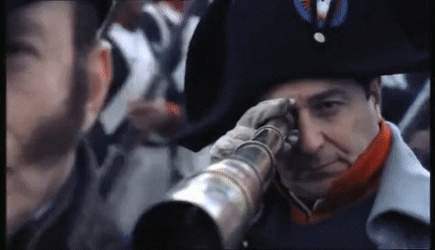
In France, Guégan aptly observes, there is a kind of nostalgia, not for dictatorship but for strong leaders. "Our age is suffering a lack of imagination and political utopia,"
Here I think Guégan is onto something. Napoleon’s stock has always risen or fallen according to the vicissitudes of world events and fortunes of France itself.
In the past, history was the study of great men and women. Today the focus of teaching is on trends, issues and movements. France in 1800 is no longer about Louis XVI and Napoleon Bonaparte. It's about the industrial revolution. Man does not make history. History makes men. Or does it? The study of history makes a mug out of those with such simple ideological driven conceits.
For two hundred years on, the French still cannot agree on whether Napoleon was a hero or a villain as he has swung like a pendulum according to the gravitational pull of historical events and forces.
The question I keep asking of myself and also to French friends with whom I discuss such things is what kind of Napoleon does our generation need?
Thanks for your question.
#question#ask#napoleon#french#french history#history#military history#bonaparte#france#historiography#republic#historians#personal
417 notes
·
View notes
Note
what were the unfinished ideas from 3 hopes you most wish they would have fleshed out?
Oh boy, I don't even know where to start.
Well, I should probably state right at the beginning that I didn't know anything about this game beside the very first trailer. I also never interacted with anyone from the fandom and went into the game completely blind.
So the only thing I knew was that Three Hopes would be some kind of alternate timeline. What I hoped and kind of expected from the game was more information on things that were not fully elaborated in Three Houses.
I'll contrinue my thoughts under the cut because, you know, spoilers.
In particular I hoped that we would learn more about Agartha, Almyra and the Nabateans. And that we get some sort of "Golden Route" where all three lords and their comrades team up and fight the true evil in Fódlan together - which are the Slitherers who infiltrated all sorts of political or otherwise important ranks and corrupted the people around them, turned them against each other and spread lies. The true villain in Fódlan is not Rhea/the church (albeit I'm the very first to admit that Rhea is seriously messed up from all the trauma she and her people had to endure during the last centuries).
Anyway, those were my wishes. But nope, we just got a slightly different spin on Edelgard's stupid war again.
About what I was disappointed in:
In general:
I was kinda baffled by Count Varley's characterization tbh. From what we learned about him in Three Houses, I had imagined him as a stern, unrelenting patriarch who keeps his daughter down and tries to force her into the role of a submissive wife for a high-ranking nobleman. Not as an even bigger bag of nerves than his daughter. I got massive Jerry Smith vibes from the guy. lol
What the hell was wrong with Sothis?? Since when does she view Byleth as just her vessel and forces her power upon him/her? Why is she acting so out of character???
Who exactly was Epimenides and what/where is Zahras? How did he incarnate his soul and powers?
On a similar note: It was never fully explained who or what Shez was, right? Apparently he/she is a vessel for Epimenides' consciousness and powers, but how did that happen? Was Shez used in Agarthan experiments? Who were Shez's birth parents? Who was his/her adoptive mother???
No matter if you recruit Byleth and kill Epimenides or don't recruit Byleth and ultimately kill him/her, the outcome is really boring and anticlimatic and doesn't really affect the rest of the storyline. Huge disappointment. :(
Scarlet Blaze:
We didn't really learn anything new about the Agarthans and never truly got rid of them either. Edelgard continues her war against the Kingdom and the Church despite knowing the Slitherers are still out there, causing a mess.
Edelgard started a war and wanted to rebuild society from the ground up, abolish nobility, crests, get rid off the established religion to replace it with a church that is only a mouthpiece for her propaganda pretty much.
She also wants to give all people equal opportunities to climb the ranks if they just work hard enough. Sure sounds nice in theory, BUT SHE DOESN'T EVEN LAY THE GROUNDWORK FOR THAT TO WORK IN HER OWN DAMN COUNTRY! She wants all people to be equal and give power to the commoners without providing them with better living conditions and adequate education first!!
When I read her A-support with Ferdie I was shocked. How did she imagine this to go? Imagine giving power to a person who can't read or write or knows anything about what goes on outside their tiny village. Like, WHAT?!?
Seriously, without Ferdinand and Hubert Edelgard would be completely LOST.
Her route in Three Houses was incredibly flawed already, but this here is outright dumb. I felt so bad for every single one of my actions...
*cough* but I digress.
Golden Wildfire:
I expected most of this route and was let down the worst. It was all over the place. I hoped for Almyran lore, insights in Claude's childhood and family etc.
But then this Shahid guy appears twice and then just dies. Like, seriously! When he fell off that cliff I thought, surely this was a fake-out and he'd show up again later. But nope. I felt really baited by this whole Almyran subplot.
What I also found incredibly ironic was how they constantly tried to push the message that the Almyrans are just misunderstood and aren't as vile as the people in Fódlan view them.
But hey, guess what: Not only does their king not give a shit about what his stupid Shahid does, he doesn't even seem to know what is going on in general, seeing that Nader can just make him sign random papers. Like, WHAT?!?²
Also, Shahid calls the people from Fódlan barbarians, but it is HIS people who invade a foreign country and plunder and destroy everything in their way. And it's not like they're a poor and starved country like Sreng. No, they have plentiful food and treasures in their homeland. They just do all those invasions for fun, I guess??
It is also directly confirmed several times in the game that Claude and Nader actively have to stop the Almyran troops from plundering the Kingdom! Can you imagine that? Claude's dream of opening borders to other nations might sound great on paper, but it is an incredibly naive thought that it would just work out like that when one nation is so aggressive. Fódlan would be a wasteland in no time if they just let the Almyrans in!
Speaking of Claude: He was my favourite of the three lords in Three Houses, but now he's dead to me. They butchered his character big time. In Three Houses he was always wary of the Church (and for good reason!). But his curiosity drove him to find out what REALLY happened in the past. Who the Ten Elites and Nemesis really were. What the Heroes' Relics and Crest Stones really are. He was shocked by the revelation. And then he used this new knowledge to set an end to Agartha and Nemesis, the real threats!
In Three Hopes everything was just: "RhEa BaD bEcAuSe LoNg ChUrCh TrAdItIoN bAd!" And then he joins whoever has the upper hand, only to turn on them the first opportunity. I'm really glad Lorenz and the others called him out for leaving Randolph and his troops - their allies - to die. But that didn't happen often enough sadly. I wanted to grab his shoulders and scream at him constantly!
He berates Acheron for being an opportunistic flag in the breeze, but then he does exactly the same thing - just 100 times worse.
During the whole playthrough I had the feeling that nobody really trusted Claude, not even his closest friends. And how could you blame them? He throws valuable allies under the bus and switches allegiances constantly. Who would ever trust a leader like that? You'd always be scared you'd be next if you're not useful to him anymore.
Urgh. I have so much more to say about this hot mess of a route, but I'll stop now. Just know that I was absolutely enraged when I finished Golden Wildfire.
Azure Gleam
Since I hated both Edelgard's and Claude's routes, I was really about to drop the game completely. I'm glad I didn't because I overall really enjoyed Azure Gleam. Still, it had its flaws too.
The biggest letdown to me was, of course, that we didn't really learn anything new about the Nabateans. I was so hopeful because we saw Indech and Macuil in the opening cutscene. But nothing ever came off it. :(
Also, I was really disappointed that nothing became of the whole Hegemon Husk Edelgard thing. I was absolutely sure Thales would transform her into the monster in the second phase of the battle, but nope. It was utterly anticlimatic. :(
Also also, what happened to Hubert and Ferdie? It said they went missing after Thales took control of Edelgard. So I thought they went into hiding and waited for the right time to save her from Thales’ grasp, maybe join the final battle as yellow or even green units. But nope, they were never seen again.
Then I have some questions about the sidequest where you get the Ochain-Shield. Correct me if I'm wrong, but wasn't that shield an heirloom of the Aegir family in Three Houses? Why is suddenly long-lost now and shows up in Indech's workshop after hundreds of years?
Another thing that I found kind of confusing was Yuri's and Seteth's support. In Three Houses I always assumed that the old man who saved Yuri's life and gave him the crest was a decendant of Aubin. But apparently it was Aubin himself???
That raises many questions: Why is Aubin the only Nabatean who was old? Seiros is probably the oldest living Nabatean and she still looks like she's in her prime. So why did Aubin age so much compared to the rest of their people?
Also, Yuri said the old man died of natural causes. What happened to his body then? If he really was Aubin himself the Agarthans must have found and taken his bones and crest stone and turned it into the Fetters of Dromi. How and when did that happen?
If that really was the case, the Fetters of Dromi can only be ~10-15 years old. How does Yuri know about this "relic" so much then?
Oh well, I guess I'm overthinking. I'm just starved for Nabatean lore. ;__;
______________________________________________________
Okay, now I guess I should conclude with what I actually liked, huh?
Lorenz. Honestly, without Lorenz, Golden Wildfire and Scarlet Blaze would have been an even worse experience.
Lorenz, to me, is really the hero of those two routes. I really, really love how he was portrayed. His struggles, his doubts, his convictions. He also had some really great scenes with his father. Definitely a huge plus! He's a great character!
I also liked Felix in this game. I like him as the responsible, mature Duke Fraldarius who still shows his sassy and blunt behaviour too. Never really was a fan of his attitude and tsundere bs in Three Houses, so this was a huge improvement.
All Blue Lions were great! They have by far the best chemistry and closest bonds of all houses. They're supportive of each other and build each other up. And they fully trust each other. I love them so much!
Jeralt (and Rodrigue) don't have to die and are both playable! ;__;
Holst's butt-chin, my beloved (also, ProZD ftw!)
Apart from that I really liked the gameplay. It was fun and rewarding and made you feel badass. lol The expeditions feature is really cool too. And there were a few really great support conversations. <3
Anyway, that concludes my TED talk, I guess lol
I want to start a petition to rename this game to “Fire Emblem Warriors: One Hope and Two Dumpster Fires”.
#fire emblem three hopes#karuuhnia rants#((I literally spent almost 3 hours typing all of this#and I still have so much more to say#but I'll leave it at that XD))
9 notes
·
View notes
Note
Hi I just saw your post about Israel and Palestinian. I don't know if you're the person to ask or if this is a dumb question but I was wondering if anyone has considered starting a second Jewish state? I was wondering because there's a bunch of Christian countries so why not multiple Jewish ones.
Sorry if I'm bothering you and Thanks for your time.
That’s actually a pretty interesting question. I am going to apologize right now, because I essentially can’t give a short answer to save my life.
I’m not a ‘Jewish Scholar,’ so while I can speak with some authority about the history of Zionism, I definitely couldn’t speak about it with as much authority as others. I mentioned in at least one of the posts I have written about the history of plans for a ‘Jewish state’ when Zionism was originally being proposed, and I can kinda of track the history of Zionist thinking for you if you are interested, though essentially it’s just about arguing where to go. But there are better scholars for this than me, so I would recommend Rebecca Kobrin, Deborah Lipstadt, Walter Laqueur … idk. Maybe just read some Theodor Herzl, honestly. With all of that said, I can speak with some authority about the post-war history of this in the Middle East. So let’s go.
In post-war times, there has really only been one serious discussion of an alternative Jewish state, as far as I know. And actually, this is part of why I find it so ironic that people are campaigning so hard to be “anti-Zionist” and to express views like “anti-Zionism” in their activism, because the Jews in Israel who are most anti-Zionist are actually the settlers of Palestinian territories, who want to secede and form a “Gaza-State” called Judeah. There's a great book about this called The Deadly Embrace by Ilana Kass And Bard O'Neill, if anyone is interested. Anyway, most of those people, who are largely Haredim (the Ultra-Orthodox Jews, though some of those settlers are semi Orthodox), have essentially been waging a “culture war” about what it means to have a Jewish state and what the identity of that Jewish state should look like basically since the 1980s.
There is a really good article about this that you can find right here written by Peter Lintl, who is a researcher at the Institution of Political Science for the Friedrich-Alexander Universitat. I’ll summarize it for the lazy people, though, because it’s like 40 pages. Just know that this paragraph won’t be super source heavy, because it is basically the same source. Essentially, the Haredim community has tripled in size from 4% to 12% of the total Israeli population since 1980, and it is probably going to be about 20% by 2040. They only accept the Torah and religious laws as the basis for Jewish life and Jewish identity and they are critical of democratic principles. To them, a societal structure should be hierarchical, patriarchal, and have rabbis at the apex, and they basically believe that Israel isn’t a legitimate state. This is primarily because Israel is (at least technically, so no one come at me in the comments about Palestinian citizens of Israel, so I’ll make a little ** and address this there) a ‘liberal’ democracy. Rights of Israeli citizens include, according to Freedom House, free and fair elections (they rank higher on that criteria here than the United States, by the way), political choice, political rights and electoral opportunities for women, a free and independent media, and academic freedom. It is also, I should add (as a lesbian), the only country in the Middle East that has anything close to LGBT+ rights.
[**to the point about Palestinians and Palestinian citizens of Israel: I have a few things to say. First, I have recommended this book twice now and it is Michael Oren’s Six Days of War, which absolutely fantastically talks about the ways in which the entire structure of the Palestinian ‘citizenship’ movement, Palestinian rights, and who was responsible for governing Palestinians changed after the Six Days War. If you are at all interested in the modern Middle East or modern Middle East politics, I highly recommend you read this, because a huge tenant of this book is that it was 1967, not 1947, that caused huge parts of our current situation (and that, surprisingly, a huge issue that quote-on-quote “started it” was actually water, but that’s sort of the primary secondary issue, not the Actual Issue at play here). Anyway, I’ve talked about the fact that Israel hugely abuses its authority in the West Bank and Gaza and that there are going to be current members of the Israeli Government who face action at the ICC, so please don’t litigate this again with me. I also should add that the 2018 law which said it was only Jews who had the natural-born right to “self-determine” in Israel was passed by the Lekkud Government, and I really hate them anyway. I know they’re bad. It’s not the point I’m making. I’m making a broader point about the Constitution vis-a-vis what the Haredim are proposing, which is way worse].
To get back to the Haredim, basically there is this entire movement of actual settlers in territories that have been determined to belong to the Palestinian people as of, you know, the modern founding of Israel (and not the pre-Israel ‘colonial settler’ narrative you’ll see on instagram in direct conflict with the history of centuries of aliyah) who want to secede and form a separate Jewish state. They aren’t like, the only settlers, but I point this out because they are basically ‘anti-Zionist’ in the sense that they think that modern Zionism isn’t adhering to the laws of Judaism — that the state of Israel is too free, too radical, too open. And scarily enough, these are the sort of the people from whom Netanyahu draws a huge part of his political support. Which is true of the right wing in general. Netanyahu can’t actually govern without a coalition government. Like I have said, the Knesset is huge, often with 11-13 political parties at once, and so to ‘govern’ Netanyahu often needs to recruit increasingly right wing, conservative, basically insane political parties to maintain his coalition. It’s why he has been so supportive of the settlements, particularly in the last five years (since he is, as I have also said, facing corruption charges, and he really can’t leave office). It would really suck for him if a huge chunk of his voters seceded, wouldn’t it?
Anyway, that is the only ‘second Jewish State’ I know about, and I don’t think that is necessarily much of a solution. I really don’t have the solutions to the Middle East crisis. I am just a girl with some history degrees and some time on her hands to devote to tumblr, and I want people to learn more so they can form their own opinions. With that said, I think there are two more things worth saying and then I will close out for the night.
First, Judaism is an ethno-religion. Our ethnicities have become mixed with the places that we have inhabited over the years in diaspora, which is how you have gotten Sephardi, Mizrahi, Ashkenazi, and even Ethiopian Jews. But if you do actual DNA testing on almost all of the Jews in diaspora, the testing shows that we come from the same place: the Levant. No matter how pale or dark, Jews are still fundamentally one people, something we should never forget (and anyone who tries to put racial hierarchy into paleness of Jews: legit, screw you. One people). Anyway, unlike other religious communities, we have an indigenous homeland because we have an ethnic homeland. It’s small, and there are many Jews in diaspora who choose not to return to it, like myself. But that homeland is ours (just as much as it is rightfully Palestinians, because we are both indigenous to the region. For everyone who hasn’t read my other posts on the issue, I’m not explaining this again. Just see: one, two, and three, the post that prompted this ask). This is different from Christians, for example, who basically just conquered all of Europe and whose religion is not dependent on your race or background. You can be a lapsed Christian and you are still white, latinx, black, etc right? I am a lapsed Jew, religiously speaking, and will still never escape that I am ethnically Ashkenazi Jewish.
Second, I think you raise a really good point about other religious states. There are many other religious majority states in the world (all of these countries have an official state religion), and a lot of them are committing a lot of atrocities right now (don't even get me started on Saudi Arabia). I have seen other posts and other authors write about this better than I ever could, but I am going to do my best to articulate why, because of this, criticism of Israel as a state, versus criticism of the Israeli Government, is about ... 9 times out of 10 inherently antisemitic.
We should all be able to criticize governments. That is a healthy part of the democratic process and it is a healthy part of being part of the world community. But there are 140 dictatorships in the world, and the UN Human Rights Council has condemned Israel 45 times since 2013. Since the creation of the UN Human Rights Council, it has has received more resolutions concerning Israel than on the rest of the world combined. This is compared to like … 1 for Myanmar, 1 for South Sudan, and 1 for North Korea.
Israel is the world’s only Jewish majority state. You want to talk about “ethnic cleansing” and “repressive governments”? I can give you about five other governments and world situations right now, off the top of my head, that are very stark, very brutal, very (in some cases) simple examples of either or both. If a person is ‘using their platform’ to Israel-bash, but they are not currently speaking about the atrocities in Myanmar, Kashmir, Azerbaijan, South Sudan, or even, dare I say, the ethnonationalism of the Hindu Nationalist Party in India, then, at the very least, their activism is a little bit performative. They are chasing the most recent ‘hot button’ issue they saw in an instagraphic, and they probably want to be woke and maybe want to do the right thing. And no one come at me and say it is because you don’t “know anything about Myanmar.” Most people know next to nothing about the Middle East crisis as well. At best, people are inconsistent, they may be a hypocrite, and, whether they want to admit it to themselves or not, they are either unintentionally or intentionally buying into antisemitic narratives. They might even be an antisemite.
I like to think (hope, maybe) that most people don’t hate Jews. If anything, they just follow what they’ve been told, and they tend to digest what everyone is taking about. But there is a reason this is the global narrative that has gained traction, and I guarantee it has at least something to do with the star on the Israeli flag.
I know that was a very long answer to your question, but I hope that gave you some insight.
As a sidenote: I keep recommending books, so I am going to just put a master list of every book I have ever recommended at the bottom of anything I do now, because the list keeps growing. So, let’s go in author alphabetical order from now on.
One Country by Ali Abunimah
Rise and Kill First: The Secret History of Israel's Targeted Assassinations by Ronen Bergman
Kingdom of Olives and Ash: Writers Confront the Occupation, edited by Michael Chabon and Ayelet Waldman
The Girl Who Stole My Holocaust: A Memoir by Noam Chayut
If a Place Can Make You Cry: Dispatches from an Anxious State by Daniel Gordis
Israel: A Concise History of a Nation Reborn by Daniel Gordis
The Deadly Embrace by Ilana Kass And Bard O'Neill
Like Dreamers: The Story of the Israeli Paratroopers Who Reunited Jerusalem and Divided a Nation by Yossi Klein Halevi
Antisemitism by Deborah Lipstadt
Six Days of War: June 1967 and the Making of the Modern Middle East by Michael Oren
The Yom Kippur War: The Epic Encounter That Transformed the Middle East by Abraham Rabinovich
One Palestine, Complete: Jews and Arabs Under the British Mandate by Tom Segev
Hollow Land: Israel's Architecture of Occupation by Eyal Weizman
30 notes
·
View notes
Text
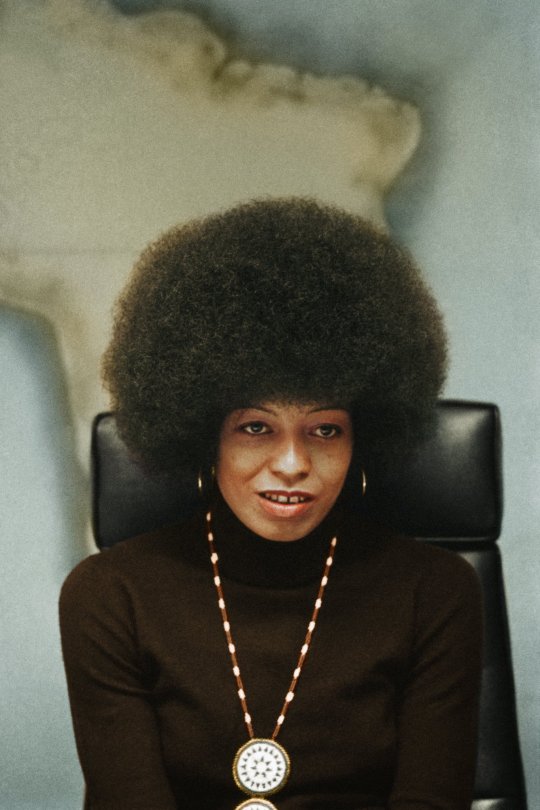
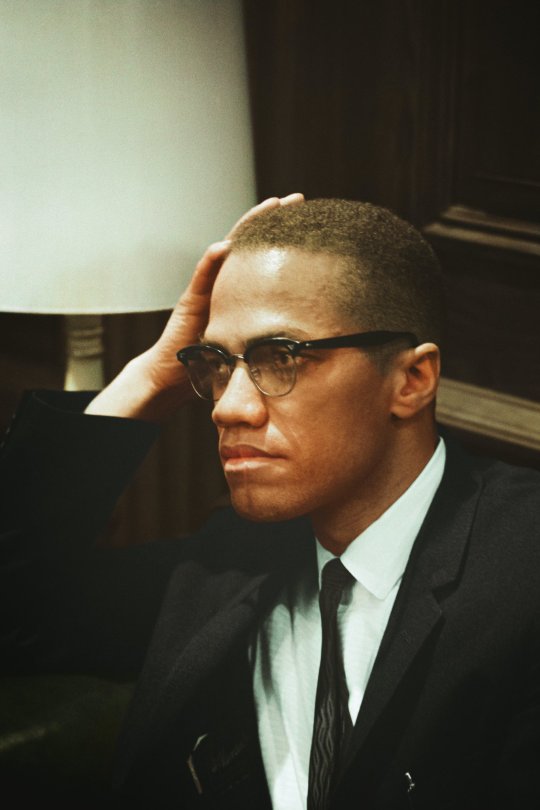
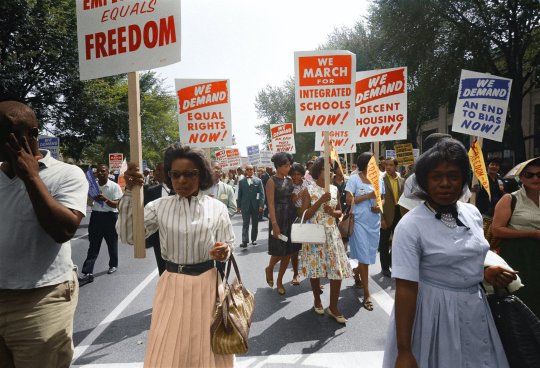
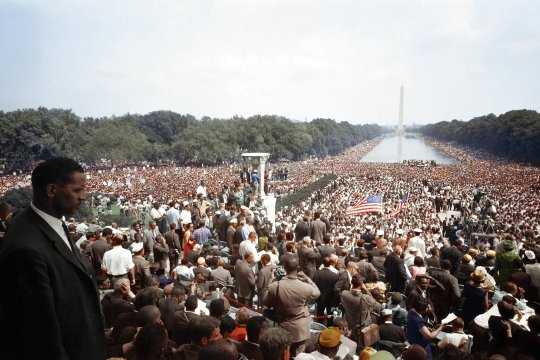
Credit: Jordan J. Lloyd
I've been trying to dive deeper into politics, discover the genuine roots of our society, the origins of our beliefs, and the consequences of our economic system. It's a big, long, wide journey and through multiple sources such as articles, images, videos and multiple social media platforms, I've been trying to educate myself more on important subjects.
Communism, capitalism, libertarian, conservative, the left, the right, the history, the impact. It is scary to commit to everything because once you start, you simply cannot stop, once you start waking up your conscience about the horrible reality, the lies, the truths, you cannot put it back to sleep. You can't just ignore prejudice, especially when you're extremely conscious of it's omnipresence. I have continually tried to build my own opinions all while actively creating bullet point arguments in my mind because I just know that at some point I will have to defend my thinking, and I want to do it right.
Now, I am so far from being enlightened, I am a beginner and an amateur in all of those themes, but I am trying, which is the only way to start and grow.
So to tell you about my beliefs, I am a militant human rights activist, I believe in equal opportunities regardless of gender identity, sex, religion, sexual orientation, ethnicity, race and disability. This is a fact, not a belief, but the system was obviously not built to protect all people, its wasn't created to serve everyone equally but to grant a privilege to some and harm others. The current state of the world is not a slip, an accident or a misfunction of our brilliant system but a testament of it operating remarkably well. I believe that equity leads to equality, and I believe that we cannot "fix" methodologies that were immorally created with absolutely no honor whatsoever. I believe in reproductive rights, in legal, safe abortions for anybody who needs one. I believe in the decriminalization of marijuana. I believe that the death penalty is a despicable punition that should be banned as soon as possible. I believe in defunding the police and the military. I believe that it is a shame that I even have to talk about police brutality, I don't want to have to say that it is one of the most horrible things our world has originated, I feel extremely dense when I do because it seems like the most obvious certitude and I refuse to believe that this is a controversial statement. I believe that everything I have just stated, along with many more, isn't anything grand but the bare minimum, the bar is low, and yet, we still have the fight for basic human decency.
Humanity has become an option. We have normalized supporting people that represent everything wrong in this world under the name of tolerance. The left has never claimed to be tolerant towards hateful beings, We have never accepted homophobia, transphobia, racism, ableism and sexism. We cannot, for exemple, accept nazis, as too much tolerance inevitably leads to intolerance. This picture explains it perfectly:
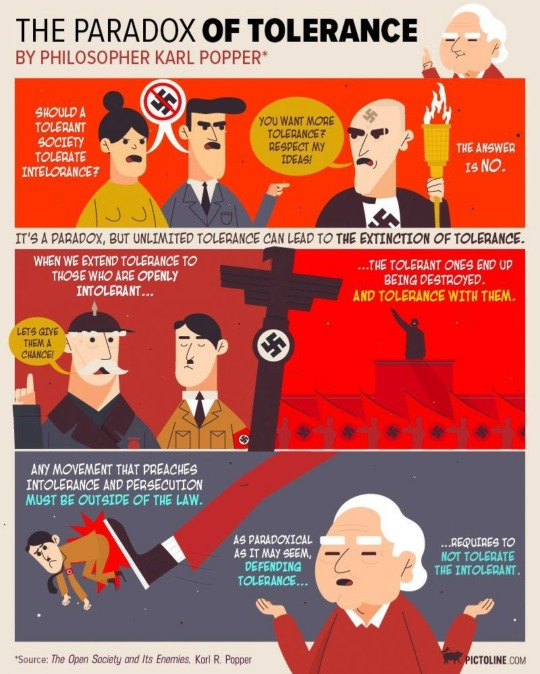
I consider myself a communist/ socialist. The two terms still confuse me a little, some say they are the same, some say they differ quite a bit. What I know is that socialism is the transitional period between capitalism and communism. At the end of the day, the final result and goal is a stateless, moneyless and clasless society that will provide to each his need.
Our capitalistic society has brainwashed us way more than you may think. It is the root of so many of our issues, the underground demon of our problems. Every idea, thought, belief, and misconception of ours were all affected by our current economic system. It has sold us the billionnaire dream which is one of the most toxic things capitalism has offered. We have looked up to billionaires for way too long, why are they so idolized? Most of them come from high upper class families that can easily afford to invest in their inventions and creations. After starting up their companies and occasionnaly stealing other's people ideas to ultimately get undeserved merit, they then can start to properly exploit their hardworking employees's labour. And for unlimited hours and a minimum wage which probably won't even suffice you to survive, you will have to either pick up more shifts or a second or even third job, especially if you have a family to support. All while the CEO barely does any of the work and gets all the praise and money. So no, they don't all come from really poor families and have built everything for nothing.
The worst thing is that we've been so gaslit and brainwashed that we're proud of our own exploitation, we are wired to think that to be successful we have to suffer, work 10 jobs we all hate, constantly pick up extra hours, have 2 hours of sleep, have no free time to do anything we love, waste our entire youth, be depressed our entire adulthood, to finally have a few pennies to spend when we're eighty. We so strongly believe that this is the only right way to be successful that I don't think many of us have dared to question it's authority, and even if we do, we quickly accept that this a truth, a fact we cannot change and this is just the way things are.
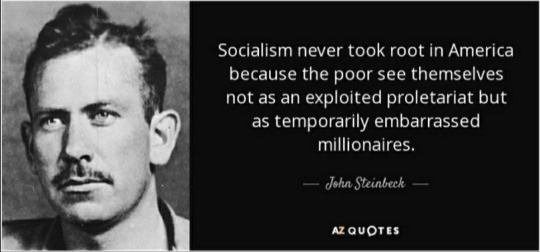
We have capitalized water, food, land, forests, oceans, space, and everything in betweeen. Money is social construct and we have deliberately let it take over our lives. To think about the wasted opportunities and the misery that we have to endure so others can enjoy life truly angers me.
Also, communism is not an ideology that has every actually taken place. Despite what they say, there was never actually a communist country. However, every nation that has attempted a socialist system, for exemple Burkina Faso, has thrived. But of course, once capitalist countries noticed that, they decided to murder it's leader. So in conclusion, the only reason socialism failed is because of capitalism and it's interventions.
"As President (1983-1987), Sankara initiated economic reforms that shifted his country away from dependence on foreign aid and reduced the privileges of government officials; he cut salaries, including his own, decreed that there would be no more flying in first class or driving Mercedes as standard issue vehicles for Ministers and other government workers. He led a modest lifestyle and did not personally amass material wealth. President Sankara encouraged self-sufficiency, including the use of local resources to build clinics, schools and other needed infrastructure. [...] President Sankara promoted land reform, childhood vaccination, tree planting, communal school building, and nation-wide literacy campaigns. He was committed to gender equity and women’s rights and was the first African leader to publicly recognize the AIDS pandemic as a threat to African countries. Although Sankara became somewhat more authoritarian during his Presidency, his ideas, and the possibility that they could spread, were viewed by many as posing the greatest threat. President Sankara was assassinated during a coup led by a French-backed politician, Blaise Compaoré, in October 1987. Compaoré served as the President of Burkina Faso from October 1987 through October 2014, when he himself was overthrown."
Via:https://africandevelopmentsuccesses.wordpress.com/2015/02/28/success-story-from-burkina-faso-thomas-sankaras-legacy/
I have been reading and watching some amazing human rights activists, notably Angela Davis, Malcolm X and James Baldwin. The people that were villainized, labeled as violent and radical, when every single word that came out of their mouhs were pure facts. They are probably some of the most eloquent people I have had the pleasure of hearing. Every sentence, every argument, every single detail made so much sense and opened my mind to so many new realizations. This is the perfect exemple of how the media tarnishes the reputation of wise black women and men. I would strongly advise you to research more about them.
"Socialism & communism are demonized in the west to the point of erasing influential individuals' socialist advocacy. Heres a short list of people you may not have known were socialists/ communists:
MLK
Albert Einstein
Nelson Mandela
Frida Kahlo
Tupac Shakur
Mark Twain
Malcom X
Oscar Wilde
Bertrand Russell
Hellen Keller
Pablo Picasso
George Orwell
Shia LaBeouf
John Lennon
Woody Guthrie
Socialism & communism are not dirty words. Some of the most brilliant minds of our history were socialists and communists. Embrace it." Via @sleepisocialist on twitter
So what else can I say, capitalism has ruined our society and the way we act and think. I know a lot of people refuse to support communism because they think it's too much of a perfect ideal utopian world for it to ever actually exist. And to that I say, first of all, so you agree, it is a wonderful theory, and second of all, a world without racism, sexism, homophobia or any kind or discrimination could also be perceived as "too ideal to actually exist", but does that mean I'm giving up on talking, educating myself and others, protesting and trying to build a better future? Absolutely not. This is the objective, it would be so dumb to think that we just couldn't achieve that so let's not even try.
I want to talk more in detail about communism, theory, human rights, etc... but I don't want to make this post any longer. I will however be posting more about it soon enough.
I know this is a little different than what I usually post, but I want to speak, tell you all my own opinions, I don't want to just repost activism related stuff. I'll continue to do that, but not exclusively. I know it won't get as many interactions as my other posts, but this is what I needed at some point in my life, and if I could make understanding some basic informations easier to some people, it'll already be a great accomplishment.
Thank you for reading.
#malcolm x#angela davis#martin luther jr#martin luther king#james baldwin#internalized racism#racism#discrimination#black lives matter#blm protests#fuck the police#defund the police#defund the military#activism#activist#abortion is a human right#human rights#oppression#prejudice#communism#lgbtq community#lgbt rights#karl marx#communist#socialism#socialist#politics#change the system#fuck the system#operating system
32 notes
·
View notes
Note
How to give the characters a unique voice in the third person pov? And how to make sure the narrator is distinct from the author?? I'm so dumb, sorry! <3
Voice in the third person is a LOT of fun and gets pretty intuitive the more you practice. I’m currently writing a novel with a split POV in the third person, so I’ve picked up a few tips on how to distinguish character voice.
1. Word choice/diction
How does the character speak in the narrative? This may help in distancing author voice from character voice if you’re struggling in that department. If you’re trying to write a close third, the voice is very limitedly filtered through a “narrator”. When I write Feeding Habits, I don’t actually view there being a narrator at all, but approach my close third almost like how I would write a first person narrative by attaching a “camera” to the character as close/intimately as I can (this is all in psychic distance IMO and THIS is a wonderful article that describes the features of that). This means the narrative style is often influenced by voice. Lonan’s POV utilizes a lot more religious terminology, darker, more existential “concepts”, and a lot of the similes revolve around animals, dead things, water, and the sun as a painful force. The language is a lot more floral in his POV as well. Harrison’s POV is different, in that there is less emphasis on “pretty” language and sad, dark things, and the writing style is a little more pared back. Harrison also has a lot of angsty internal monologues when he’s doing very mundane tasks while Lonan has his breakdowns doing something dramatic lol. I made those choices purposefully knowing how their voices differ.
Here are a few questions to ask yourself when trying to sort out voice that I learned in a character lecture regarding revelation of character (I’ve added onto this/adjusted some of it & I’ll use my book as an example to answer them):
Psychological description
What is their thought process like?
Lonan is the most illogical logical person ever. He has this intensely logical thought process that is all based on illogic. Harrison’s thought process is quite black and white from A to B with seams of subtext and greyness laced through.
What do they say/don’t say? What should they say?
How do they say it (language conventions? diction? tone? lexicon?)?
When I write with Lonan, the narrative almost always has “bigger” more “concept” words (generally more academic). Harrison’s language at the moment since he is Hurt Bae, revolve around vocabulary that have “hurt” undertones. In terms of dialogue, Lonan rarely speaks and if he does, it’s 1 words answers (SOMETIMES a sentence lol). Harrison SPEAKS and sometimes rambles when he gets unhinged.
How do their private thoughts/internal narrative sound?
Is it the same as their dialogue? Re: diction, language conventions etc. Things that may affect that are their experiences (upbringing, occupation, relationships, traumas) and worldviews (interests, religion, moral code, political affiliations/opinions).
What do they do?
Habits? Do they repeat themselves often to self-soothe? Do they use a certain word when describing a certain thing? For example, Lonan attaches to the word “stunning” in his part of the book and always mentions it in moments of distress. Harrison attaches to the word “glamorous” and repeats it for the same reasons
How do they react to their environment? Do they react at all?
Lonan ALWAYS notices the weather. Harrison doesn’t notice nearly as much
How do they react to others?
Are they judgmental? Untrusting? Naive?
Lonan is wary when he meets people and usually defLECTS to the environment around them, Harrison goes for the physical description and really focuses on the details
How do they react to themselves?
Lonan doesn’t... like himself :) If he is Known (TM) by Himself (TM), he gets ~upset, usually shuts down into himself and kind of dissolves from there... Harrison usually has problems with other people that are really just reflections of problems he has with himself. He handles this by getting self-destructive and a bit... mean (aka, he runs, far, far away from his problems).
This leads to my next tip.
2. View the “narrator” as the speaker
This is one that I’ve just thought of as a fiction writer who’s now... a poet lol! In poetry, the “narrator” of the poem is the speaker, and I find this is such an efficient way to understand fiction narrators if you’re confused on how to distinguish your voice from the character’s. In a third person narration, you technically have a narrator that is NOT the character. The narrator could be someone else, OR how I usually write third person narratives (intimate thirds) is almost how I approach second person: the narrator is almost a mirror of the character themselves and the reflection is telling the story (think: you’re sitting in a car and your reflection is in the rear-view mirror--the third person narrator is the reflection). I’m going to pen this as “Reflective Third Person” even though that POV probably doesn’t exist because that’s how I personally like writing a close third (but you might want to write a more distant third - this is up to your intention). Whichever closeness you choose, I find viewing the narrator as the “speaker” rather than the “narrator” can help clarify what you mean by “narrator”. Narrative (and naturally, voice) is comprised of two parts: the character & the writer’s style. Sometimes it can be confusing to understand if the character is the narrator or if the writer is--if your intention is that you DON’T want the story to be written into your voice, perhaps reframing the way you think about the “narrator” can help. In poetry, speakers can be anything and anyone and while that is the case with narrators, perhaps viewing your narrator (character) as the “speaker” of your narrative could help distinguish the two and remove some of your writer’s voice.
A mistake people can make when writing the third person is separating the character from the narrative so much (this is fine if your intention is for distance, but if you want intimacy, you obviously can’t distance the character and the narrative and expect that to work). Once I started viewing third person as malleable, just like any other POV and not a voiceless void, I found it much easier to handle!
Hope that helps!
28 notes
·
View notes
Text
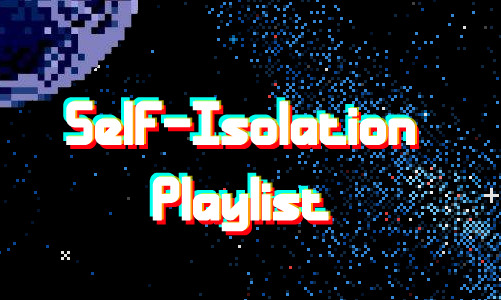
If you’re doing Self Quarintine (and you should be if you can help it) here’s some Youtube recommendations! Some of these I have posted about or recommended before but with almost all of us stuck indoors now’s a good time to remind you of some cool things you can watch for free!
I’m not gonna imbed the videos, I’ll just post the link because otherwise I would only able to post 5 and I want to collect a few so you can make a playlist or something. (I could make a playlist too but then I couldn’t tell you what each video is and you can’t pick and choose which one sounds interesting to you)
In no particular order:
Polybius: The video Game that doesn’t exist

An hour long documentary in which the youtuber did extensive research to find the origin of the “Polybius” Urban Legend, which speaks of an early arcade game reportedly seen around the early 1980s which reportedly gave people migraines, insomnia, nausea, subliminal messages, and in some cases heart attacks.
The Universal S

A shorter video in which LEMMiNO does his very best to try and track down where exactly this S that we all drew in middle school comes from? Why does literally every country on earth seem to HAVE their children draw this S?
I also recommend LEMMiNO’s video on the Dayltov Pass Incident and the perplexing UFO cases
Down the Rabbit Hole: Henry Darger

Fredrick Knudsen has an incredible fascinating series called “Down the Rabbit Hole” which simply focuses on... anything you can discover and go digging into. From weird internet personalities, to bizarre happenings in history. This video is about the artist Henry Darger, a man who lived in the early 1900s and for all intents and purposes had a perfectly average, lonely life, until it was discovered just before his death he had spent literally decades writing and drawing a fantasy world in what is possibly the longest piece of literature ever written.
I also recommend his video on the Hurdy Gurdy
Bedtime Stories Channel
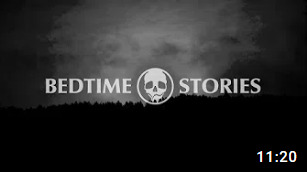
I’m actually just gonna link the whole channel for “Bedtime Stories”. If you like weird and creepy stories, all of which at least claim to be “true” then Bedtime Stories is great. Coupled by illustrations and subtle sound effects, Bedtime Stories is literally listening to someone tell you a story about such things like hikers who mysteriously went missing, Sightings of Bog Men in Florida and giant Birds over Chernobyl, as well as weird and unsettling murders that remain unsolved. Sometimes the facts are a little dubious or have been disproved, but that’s not the point of the channel. It’s here to tell a creepy story, not give you a documentary.
A Journey Through Rule of Rose

Rule of Rose is a Survival Horror gave for the PS2 which has rather bad gameplay... but a FASCINATING story with just as many layers and symbolism as Silent Hill 2 could boast. It tells the story of one young woman traveling back into her own childhood in an orphanage in the 1930s, and all the horrors that contains. From repressed grief, abusive relationships, child neglect, abuse, and bullying... but it ALSO contains symbolism of societal class structure, politics, eating the rich, and how power structures work. Not for the faint of heart, but HIGHLY recommended.
I also super highly recommend his video on the similarities between Silent Hill 2 and Solaris
Clemps Reviews Crisis Core
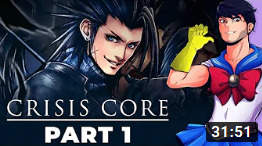
Mr. Clemps is a great internet gamer who reviews JRPGs and other games he simply enjoys. Sprinkling in a heavy dose of comedy and very fast jokes and observations, Clemps’ videos are always upbeat, fun, and incredibly enjoyable to watch. I’m linking part 1 of his Crisis Core video in which he explains why the PSP game remains a personal favourite of his despite its flaws.
I also recommend his video on Eternal Sonata
Defunct TV: The History of Dragon Tales

Defunctland is a channel that deals with theme parks and theme park rides that are no longer standing, or which are no longer around in their current form. Defunctland also has a sub series though, called “Defunct TV” where they look at the origin of children’s TV which are no longer airing. I recommend the video on Dragon Tales which is incredibly wholesome, and a genuinely uplifting and soft story of good people trying to make good things for children. (I also recommend the videos on Bear in the Big Blue House, Zoboomafoo, and Legends of the Hidden Temple)
Hagan’s Histories of Polar Exploration
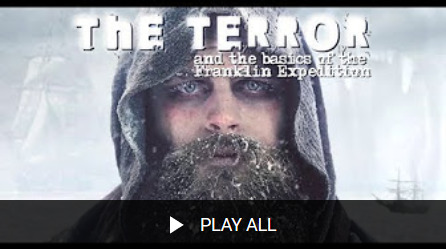
A Playlist for Diamanda Hagan’s videos about the doomed Franklin Expedition from the late 1800s, where England tried to find a passage through the Northern Arctic to the Pacific Ocean. This went horribly horribly wrong, with every member of the Expedition dead. Over a 100 years later we are still fuzzy on what EXACTLY happened, but apart from the arctic chill, there is also evidence of faulty canned food, a series of bad decisions, and cannibalism. Caution advised for this series.
I also recommend the rest of Diamanda Hagan’s channel. She is NOT for everyone, but if you enjoy somebody reviewing Z grade indie movies as well as just BIZARRE films, really bad Christian media bordering on Science Fiction (without making fun of religion itself) hot takes of classic (and modern) Dr. Who, an introduction to Red Dwarf, She’s an EXCELLENT channel to check out.
Good Bad or Bad Bad: Pass Thru

A half podcast half review show where two guys watch a terrible film, decide if it’s “Good” Bad or just Bad Bad and tell you if you should watch it too.
That’s it. That’s the whole show.
I recommend diving into the untold madness that is one of the best(?) bad film makers currently still producing batshit insane movies, the immortal Niel Breen.
There is literally nothing I can say that’ll prepare you for Niel Breen.
(I also recommend their more recent video for “Dancin’ It’s on!”)
History Buffs: Apollo 13
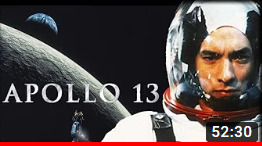
Do you like History? Do you like movies ABOUT History? Do you want to know if the movies about history you watch actually resemble what really happened in any way at all? History Buffs is an EXCELLENT channel, which does talk about the merit of a film itself, but is mainly focused on letting you know just how true to life that historical film you watch is. I highly recommend his longest video which covers the space race between the USA and the USSR, leading to what is known as “The most Successful Failure in NASA’s History”. The Infamous Apollo 13 and where the words “Houston, we have a problem” came from.
If you’re not interested in Apollo 13 however, I also recommend his video on the movie Casino, as well as his video on the female philosopher, Agora.
The Internet Historian: The Goodening of No Man’s Sky

With videos with literally MILLIONS of views, you probably already know the Internet Historian. But I still want to recommend him very highly because his videos are just THAT good and entertaining. I recommend his newest video, documenting that time we were all pissed off about No Man’s Sky, the difficulties the game studio was in when the game released, and how they have been working hard to finally create what is now a truly brilliant game which is winning major awards. A really good underdog story of how a video game company actually saw what was wrong with their game, and FIXED it.
I also recommend his video on Fallour 76 as well as the Failure of Dashcon
8 Creepy Video game mysteries

Hey. Did you know that sometimes there’s some REALLY weird shit in video games, hidden easter eggs which took literal decades to find as well as just a lot of “what the actual fuck?”. Oddheader is a channel with a dedicated discord and Reddit form solely focusing on trying to find or replicate bizarre video game finds, mysteries, and hidden glitches. Even if it means getting in his car and driving to a specific arcade just to check a rumour about Street Fighter II’s arcade version. So if you like getting spooked by weird game shit that’s not just some dumb creepypasta, this is a great place to start.
I also recommend his video on weird discoveries in DVDs and movies.
Red Letter Media: Best of the Worst

Look you already know who Red Letter Media is.
You know... these guys:
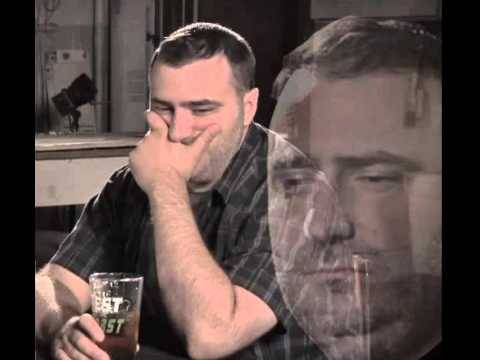
Here’s a video of them and Macaulay Culkin watching 3 terrible movies together.
I recommend literally any and all of their videos. Their discussion on Carpenter’s The Thing is amazing.
The Impact of Akira: The film that changed Everything

Ok trying to pick just ONE Super Eyepatch Wolf video is literal torture. Originally I was going to suggest his recent video on Final Fantasy 7 for the PSone but I realised I recommended something FF7 related with Clemps, so instead I will recommend The Impact of Akira, a video talking in depth about Akira both as a film as well as a manga, how it completely and utterly changed the anime industry both in Japan as well as the west, and why it is still a meaningful and one of the most important anime/manga even to this day, still being unsurpassed despite so much competition.
However, ALL of Wolf’s videos are incredible, so I also recommend his videos on wrestling (despite me not caring about wrestling at all), His video on how media scares us, The bizarre reality of modern Simpsons, Why the Dragon Ball Z manga is great, and literally any other video he’s made. He hasn’t made one bad video yet.
Was Oblivion as Good as I remember?
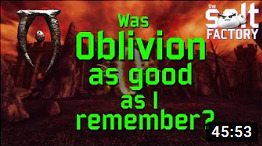
Exactly what it says on the tin. The Salt Factory goes back to playing The Elder Scrolls Oblivion and now with hindsight and modern sensibilities, gives feedback on his experience and whether Oblivion still holds up. This isn’t a super in depth review of the game’s mechanics or how its put together or how it was made. This is simply one guy talking about his experience replaying it with somejokes thrown in and how he felt revisiting it. It’s pretty good.
I also recommend the video he did on Morrowind (because I’m biased).
Weird Japan Only PS1 games

Thor High Heels is SO GOOD and deserves SO MUCH MORE subs than he currently has. THH focuses a lot of obscure and lesser known games as well as big popular titles like the Yakuza series, talking about what he likes about them, what he thinks is cool, and just what kind of atmosphere and mood a certain game has, even if the game itself is kind of ass. He’s done several videos on games that were only released in Japan, as well as videos talking about the fashion in Squaresoft games and how it inspired as well as was inspired by real world street fashion, the aesthetic of PC-98 games and other topics. He also styles his videos and thumbnails after promotional art for video games from the 90s and generally just has an excellent style to his channel over all. Very chill.
Blue Reflection Review

ValkyrieAurora is a channel run by Sophie where she talks about games she personally likes and enjoys. Her videos are really laid back and her voice is really calm and pleasant to listen to. She’s made a bit of a reputation for herself as “The channel that talks about the Atelier Games” and general is just a really enjoyable channel worth checking out if you just want something soothing to listen to.
Ancient Chinese Historians Describe Japan
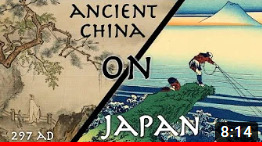
Voices from the Past is a channel were historical text is read out loud in english. These can be anything like the above video where Chinese historians describe the people of Japan around 297 AD, Accounts of “Dog-Men”, or the worlds oldest letter of complaint from 1750 BC. If you’d like something interesting historically to listen to but don’t want a full blown history lesson, this is a really good way to hear contemporary people talk about their experiences and what they thought about each other in their own words, without opinions or input given by the narrator.
The Most Mysterious Song on the Internet

Whang! is a channel that covers weird internet stories, some horrifying, some curious and interesting, and some just plain weird. His video on The Most Mysterious Song on the Internet and its update, are about a song which was recorded off the radio in Germany around the 1980s, and after one person online asked if anyone knew who the artist was as they couldn’t find any information, led to the realization that NOBODY online knows where this song came from or who sang it. It’s a fun mystery to look into that, unlike some others on this list, is not creepy or unsettling, although perhaps a little frustrating.
I also recommend his video on The Most Mysterious Anime theme song, and the haunted Ebay Painting.
5 Lost, Destroyed, and Locked away Broadcasts

Yesterworld is similar to the Defunctland channel in that it talks about obsolete rides, theme parks and other forgotten pieces of entertainment. Although the majority of the channel focuses on movie rides, rollercoasters and Disneyland, I recommend the video on lost and locked away broadcasts which you can no longer see. I also recommend the video about Lost and Rediscovered movie props.
The Nightmare Artist
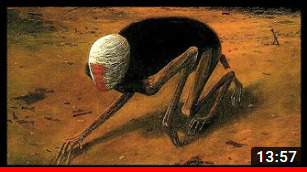
I talked about this one recently as I just discovered this channel. This video is about the renowned Polish artist Zdzislaw Beksinski who painted surreal and horrifying paintings during his lifetime. There is no mystery here or anything like that, it merely talks about the impact WWII left on Beksinski and how the trauma his country and people suffered influenced his painting, and how certain images and motifs can be seen to directly reference this terrible part of Poland’s history.
Disabilities in Prehistory

Modern media likes to portray how “savage” the ancient past is, and tell us stories of how any person born with a deformity or disability would be thrown over a cliff or dumped in a well because they would be too big a drain on a community to look after. But here’s the thing... according to archaeological evidence, it turns out our ancient ancestors actually did their best to look after its disabled members to the best of their abilities. This video talks about archaeological finds of people who had genetic disabilities and what we can learn from their remains. TREY the Explainer is a great channel for archaeology and also talking about what answers we could have for sightings of cryptids. (not ALL of which we have answers for)
I also recommend his video on Pre-Contact dogs as well as Homosexuality in Nature and the Genetic History of the Ainu.
Decoding “The Secret: A treasure Hunt”

“The Secret” was an art book released in the 80s full of beautiful paintings, but it is also more than that. The book has a fantasy story talking about 12 fantastical races who left wonderful treasures for humans to find,and the book’s paintings and riddles will tell you where you can find each of these treasures which are yours to keep if you can solve the puzzle... and the treasures are 100% true and can actualy be found and claimed, if you can solve the riddles in the book. The video tells the story of the artbook, who was behind it, what the treasures are, how many have been found and various other facts and details.
I also recommend the videos on this channel “The Game: A scavenger Hunt” and “The investigation of Erratas”.
5 Ancient Inventions That Were WAY Ahead Of Their Time
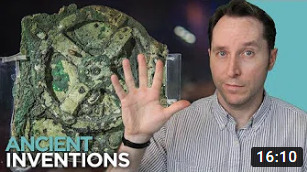
I would recommend you be careful with this channel as its main focus is existentialism and rather alarming topics such as “how close are we to the apocalypse” and other things whose titles alone are enough to upset me. However this video is nothing like that. This video is exactly what the title suggests it is. 5 ancient inventions that were so incredibly ahead of their time you’d think they were made up. From the computer used by ancient Greeks to steel swords we don’t know how to replicate, this video is a great mix of mystery and history.
Although I caution you with this channel, I recommend Joe’s other videos about mysterious books, as well as his video on the most inbred people in history.
However, I know I keep repeating this, I highly recommend caution with this channel. Perhaps its just me and the topics of life and existent are just triggering for me, but I’d recommend maybe just doing a search for the titles I mentioned and not to go searching through the video library unless you’re not bothered by this kind of thing.
-
Anyway I could keep going, but I think that’s a LARGE amount of videos to keep you occupied for the time being as well as some suggestions for further viewing.
Please enjoy, let me know if you found something interesting, and look after yourself!
If you enjoyed this list at all, please consider tipping me for a coffee
☕️ Ko-fi ☕️
#self isolation#Youtube#Links#Recommended#recommendations#documentary#long post#ask to tag#tumblr ate the 'read more' I put on this so screw it#Just scroll past or hit J to skip this if you want#No editing we die like men
294 notes
·
View notes
Text
Luciferian Challenge: Day 12+13 (And 22)
A few of these prompts ended up being very similar in theme, so I’ve combined them into a bit of a long reply.
Dogma is something we throw about…that we reject it. Where do you think we may fall short as Luciferians/Satanists when it comes to dogma? Do you think dogma has a certain value?
I don’t think dogma has any value really, no, as I don’t like the idea of rules or ideas that cannot be questioned on principle. Even as a child, I took issue with blind obedience. My mother once called me downstairs, and I asked why, and my father got angry and said that I shouldn’t bother to ask why and just do it, and that even if one of them told me to jump out of a window they probably had a good reason for it.
That memory is seared into my brain and still irks me.
I do think rules themselves can be important, but when we speak of rejecting dogma it’s typically in the sense of it being some authoritative status quo that cannot be discussed or challenged. I think my example above is a good example of that, as petty as it may seem: that parents should be obeyed without question and with the assumption they have our best interests at heart.
I do not believe there’s room for that sort of attitude in an empathetic and respectful society, even towards children. Respecting their natural curiosity and teaching them about bodily autonomy is something I think can only be a net good. The only thing growing up in a strict household taught me, where there was little room for negotiation or challenging of the way things were, was how to be a decent liar.
It harmed me in far more ways than it helped instill any positive values, and while I would not want to belittle the experiences of anyone in a similar boat, I consider myself one of the lucky ones. There are some families where a dogmatic stance, whether based in politics or religion, can lead to the alienation or outright abandonment of LGBT youth, of young women who wish control over their own bodies, of those with views that differ from their parents’, or any other black sheep.
I feel like this question and my thoughts on it really go hand in hand with the next one, so I’m going to actually combine them into one post and make up the difference later.
Do you think it’s dogma or silly to say what Luciferianism/Satanism is not?
I do not think it’s dogmatic to say what Luciferianism or Satanism is or isn’t. The reason I’ve kept both labels in these two prompts, when I’ve removed them in every other post, is because I spent a lot of time in a mixed Luciferian and Satanist community during the beginning of my religious journey. Despite our differences, especially in the case of Atheist Satanism versus Theistic Luciferianism, I saw a great deal of overlap in a lot of the values/ideals, inspirations, and talking points.
I think outlining those ideals and values is important to just… having a label. Words mean things. Religious affiliations and ideas mean things. Even saying you belong to or adhere to a school of thought typically has some manner of definition or parameters. While Luciferianism and Satanism can be incredibly diverse when it comes to the details of one’s ethics and morals, practices, views of the divinity or lack there of, and other suck points, there’s a good deal that does unite us that’s reflected in the archetypal figures our religions are named after. I also believe that certain aspects of what is seen as the Standard Luciferian should be weighed more or less heavily. For example, I don’t see my irritation with hostility towards Christianity as something that makes me less of a Luciferian.
However, I want to combine these two prompts with one more to round out my view of this topic.
What do you disagree with Luciferians/Satanists most?
In the goddamn dogma they cling to and perpetuate while claiming to be adversarial to or enlightened above such ideas. It’s become almost a meaningless buzzword. It barely still looks like a real word to me anymore. This is honestly where my post goes completely off the rails into a mini essay, so it’s under the cut.
The idea that all “Abrahamic” religions should be treated as inherently harmful and oppressive is a bad take.
That Christianity, Judaism, and Islam should even be lumped together when discussing such issues betrays a shallow understanding of these religions that’s been regurgitated from one person to another, typically through a culturally Christian lens.
The idea that “only LaVeyan Satanism should be called Satanism because nothing else that calls itself Satanism is actually Satanism” is exhausting, and I will fist fight Anton myself in hell.
The principles of Might Makes Right and Social Darwanism that some Satanists perpetuate is dumb and bad and wrong, sorry, that’s the only rebuttal I’m dignifying that school of thought with. Once again, I will be fist fighting Anton in hell.
And that’s to say nothing of the Satanists and Luciferians out there that regurgitate the same racism, sexism, homophobia, transphobia, and other assorted bigotries that they’ll condemn religions like Christanity for while perpetuating it with a coat of black paint. Because I have absolutely seen this first hand, both as an observer and as the target of it.
Like... I can’t speak on Islam at all, because I have very very limited experience with it from both a research and real life experience point of view, and thus I’m not comfortable making any claims. On the other hand, I do know that to list all the ways that Judaism is not a dogmatic religion would deserve its own post written by someone far more knowledgeable than me, and it somehow still gets lumped into the Problematic n’ Dogmatic category of AbRaHaMiC ReLiGiOnS. For that reason, in the case of Islam, I can’t help but wonder if the assumption that it’s also dogmatic comes from the harmful assumption that it’s a religion that’s strict to the point of harshness that a lot of people have.
Even in the case of Christianity, which I would argue (as someone who I’d say was raised within the church) is hands down the most seemingly dogmatic of the three (particularly in North America), this is just not universally true. If it was, there probably wouldn’t be so many branches and denominations, many of which cannot stand each other and think the rest are misguided at best and heretical at worst. This is something that’s even brought up in the Satanic Bible; I’ve read the miserable thing. Have you ever seen someone say “Christians and Catholics”? That’s a pretty loaded example of how much disagreement exists within the religion when an entire core branch of it is considered tangentially related.
Not to mention, I was raised Lutheran. That came about because a German Catholic got incredibly steamed at his own religion so he made a more boring different version of it. While the existence of dogma has led to these schisms, historically speaking, the end result has been a religion so varied that it’s hard to say what is and isn’t treated as inarguable law. If you don’t believe me, try talking to a Protestant pastor about the Seven Deadly Sins and see how far you get. I tried during confirmation class and got shut down immediately... but on the flip side, my church was pretty accepting of LGBT folks, which I think some people would claim Christianity is dogmatically against by default.
Is there dogmatic thinking within specific churches or branches or communities? Absolutely, I wouldn’t argue that. I think it can arise in any community, religious or not, but that some religious communities seem to be particularly vulnerable to it. But the harm those specific cases could do should be where our focus goes, not the condemnation of these religions or the concept of religion as a whole, which I touched on in a previous prompt.
I’m not some glorious enlightened mind. I would not want to give the impression that I think I hold in my hands the One True Way to do Luciferianism, or that I think the majority of this religious community are uncritical edgelords. This is, after all, my answer to the thing I take issue with the most, not my thoughts on Luciferianism or Satanism as a whole. I just don’t think it should be a particularly hot take that Religious Discrimination Is Bad Actually, or that maybe you can be rebellious and adversarial and hedonistic and enlightened while still genuinely giving a shit about people. Because otherwise what’s the point?
If we are hostile and rebellious with no actual end goal, no greater cause or purpose, we are simply being contrarian for the sake of it. If we blame the idea of organized religion instead of those who manipulate and abuse faith and scripture for selfish and malicious ends, we’ve missed the point, as I said in the aforementioned previous post. Not all of us have the ability to become an activist, obviously, and I would not ask you to. But I think as those who would claim to reject dogmatic thinking and strive to embody either the ideals of enlightenment or the adversary would do well to be ever questioning their preconceptions of the world around them, of other religions, and of less obvious unjust structures of power.
I don’t know why a community that believes in illumination and free thinking sees the world in such black and white ways.
While I will always strive for a greater understanding of the world, and I hold the concept of enlightenment very dear to my heart, I think it’s something that one spends a lifetime working towards. Alongside my favourite quotes from Paradise Lost, I hold the Socratic Paradox of “I know that I know nothing” as a personal motto, and I wish more people who I share this label with would do the same.
#luciferianism#theistic luciferianism#satanism#theistic satanism#witchblr#left hand path#lhp#30 Day Luciferian Challenge#30dayluciferianchallenge#illumine
4 notes
·
View notes
Text
JK Rowling is dominating my dash right now. And not that any one cares about my 2 cents, but -
JK Rowling is an excellent case study of authorial intent, changing social tides, and the debate between bad representation vs good representation.
But I think there’s one other thing that get’s lost in there, I dunno if there’s a real term for it, but it’s how people grow and evolve over time, and how the internet makes that both harder and easier.
I didn’t grow up in an ultra conservative or overly bigoted environment, but it’s easy to absorb a lot of those values and ideas just from the background radiation that is mainstream media. I wouldn’t be who I am today with out the internet, and all the people on it, who laid down the foundation of education, activism, and really just sharing stories of their own lives as real people who are impacted by oppression and injustice so I can be exposed to experiences outside my own bubble. I know “keyboard activist” is thrown around like it’s an insult these days, but I’ll never not be aware that online discourse and tumblr specifically has shaped my political and world views more than anything else.
It didn’t happen overnight. It wasn’t pretty. Shedding layer after layer of what I know now are mainstream anti-feminism and bigotry was a long and awkward process. I can put my foot in my mouth easily and often talking about everyday topics; trying to wade through forums and blogs and comments was always going to have me opening my big mouth to say something I’m not proud of. But you know what? I learned. I grew. And most of those conversations exist now only in my memories, an anonymous nobody drowned in obscurity, lost to time, sometimes bombed from orbit as a site shuts down or is wiped out. No big loss, to be honest.
But what if they weren’t? What if I was a celebrity? What if everything I wrote or typed was immortalized and canonized and put on display for the world to see? What if my words, good or bad, existed forever and ever, for people to dig up and use as “proof” that this is what I said and believed then, so It must be what I believe now?
In short, What if i was JK Rowling?
Joanne Katherine Rowling has never been a perfect person or a perfect author. Her books were always flawed. She never did enough, never did it right, never created anything that wasn’t problematic somehow. Her works are a reflection of who she was and what she believed in the moment. But am I supposed to think that they are a reflection of who she is today? 13 years ago she wrote a redemption arc for an incel, retconned a straight character gay after the fact, flubbed an aids metaphor, flubbed a slavery metaphor, and tied off a series about anti-fascism with “and then they did nothing about any of the underlying causes and had babies ever after the end”. 13 years ago I was a dumbass voicing my dumbass opinions on representation, affirmative action, religion, and really really wanted to make sure that I “wasn’t like other girls”. Oh, god, the fanfiction, the homophobia in my fan fiction, cackling as I pwned the yaoi fangirls for having such dumb opinions about /my/ favorite characters.
Am I a bad person? Are those long-forgotten footprints an indelible mark on my character?
Intent isn’t magic. “But I’m different now” is the empty rancid promise of every fan-favorite character that gets an undeserved redemption arc. “oh, it was different time, that’s just how things were” is wrong for straight white men and it’s wrong for everyone else. But if change is worth doing then it has to have some value somewhere. If someone interacted with me or my online presence they would have a very different picture of what I believe and who I am, compared to what they would have gotten 13 years ago. It would be almost impossible to dig up my old comments and indiscretions and link them back to me. I would almost appear to have been born full formed at the exact level of “woke” that I am today. Ironically as a internationally renowned celebrity and millionaire this is one luxury JK Rowling can never have.
I’m not going to pretend that contributing to the ugliness in the word is something the perpetrators can put behind them when they fell like they, personally, have moved beyond that. And just because people change doesn’t mean they always change for the better. But 13 years is a long time to be absorbing and studying and evolving, and the internet makes it easier every day to interact with tens of thousands of people who’s lives and testimonies you never would have encountered if you were just meeting them in person one by one. A lot has happened in 13 years too. We take for granted that “woke” media has a chance to get published, for one thing. We seem to have forgotten that once upon a time her books were already so controversial as to be banned over and over.
So yeah. She wrote a lot of fat characters as being evil and slovenly, compared to thin characters being, if not good, at least intelligent and worthwhile. She had every last Slytherin, right down to the first years, slink off instead of fighting in the final fight. She had Voldemort be “born evil” because of something his parents were on when he was conceived. She had Ron/Hermione as endgame and then said that she regretted it and they would probably never work out long term. She named a child Albus Severus and expected people to be good with that. Why the fuck did she think we needed to know about wizard toilets? She is, and continues to be, an imperfect person and problematic writer. But to pretend that she, in 2020, can’t possibly be sympathetic to LGB issues, well-informed on trans activism, and more committed than ever to feminism and the liberation of women, just because 13 years ago she didn’t have the foresight to put more empty performative sjw talking points into an already bloated manuscript?
I’m standing /right here/.
127 notes
·
View notes
Text
Haven't finished fully yet but here's some facts about vic (thank you ren for the template!)
:readmore:
General
Full Name: Victoria Sakamaki
Reason for name:idk yet
Nickname: Vic
Reason for nickname: its short and nice : )
Age: 40-years younger than the sakamakis
Sex: Female
Gender: Woman/baddest bicth
Place of Birth:
Birthday: 16/11 (16th of November)
Currently living in: The Sakamaki house
Species/Race: Pure blood vampire
Ethnicity: Kinda complicated cause she grew up in the us so has has a cultural connection with the human world rather than the demon world.
Blood Type: A+
Occupation: Moderator of her sister's twitch chat if that counts
Sexual Orientation:Bisexual
Social Status: She's Richter's daughter so i guess that makes her royalty?
Relationship Status: Single (has had 4 past relationships)
Status: Alive and kicking (but not thriving)
Appearance
Body Build: inverted triangle with a SNATCHED waist and LEGS oh boy shes got some legs
Height: 175cm
Weight: idk yet but shes toned
Skin colour:
Hair style:
Hair colour: Light blonde
Eye colour: Blue
Distinguishing Features: yo she got that chiseled jawline and wide shoulders
Preferred Clothing: Simple but elegant (chinos pants with square buckle belts , turtlenecks and silk buttons ups/tops, jeans .Usually she combines monochrome pieces together.)
Accessories: Her accessories are minimal and simple looking (gold chains , hoop earrings, etc)
Health
General health: She's healthy : )
Posture: Always amazing
Any physical illnesses?: No : )
Any mental illnesses?: Yes : (
Take drugs?: She might have a joint or do a line of coke from time to time but nothing crazy or regular.
Smoke?: Lmao yeah everyday
Mental/Emotional State
Archetype:
Mental age: 22 college gay frat bro that's like "yassss lets get fucked and crazy tonight bro" and 44 year old depressed dramatic lesbian widow that murder her rich husband for his will "no officer i don't know what happened to my husband " at the same time
Act before thinking/Think before acting?: Always act and talk before thinking , she has no filter
Emotion-wise, generally: She's unexpectedly good at reading the emotions of others and helping them open up idk how , this bitch is dumb as fuck
Conversation
Way of speaking: She will call you a bro and a darling in the same sentence, it's hard to explain she has that slow "Yes, darling" elegant way of speaking but also will also say shit like "Ayato, babe, stop being a cunt."
Common conversation starter: "What?"
Swears?:All
Made-up words?:no
Made-up language?:no
Likes/Dislikes
Likes:
Dislikes:
Hobbies
Habits
Strengths/Weaknesses
Strengths: Good at getting her shit together and fixing situations when nobody else will. Cares a lot about family. Honest. Apart from being a violent when provoked she doesn't lose her composure under stress. She's good at helping others open up about their trauma/emotions and can pick on when others are pretending to feel ok. Only gives advice for things she's been through and when she does it's actually pretty good. She know how to fill taxes.
Weakness: Has no filter, gets provoked easily, doesn't avoid violent confrontations , doesnt't try to de escalate situations , shes also an asshole and can be very rude. She will not pretend to like somebody just to avoid negative interactions. Very apolitical and tries to avoild anything that has to do with her social status and political power of her family.
Skills/Abilities
Education/Intelligence
Education:
IQ: 69
EQ: 420
Secrets
Fears
Dreams/Goals
Just finding happiness one day.
Views/Opinions on...
Government: Mostly apolitical with human politics, pretends karlheinz doesn't actually exist
Religion: doesn't really have an opinion
Economy: is aware that she had class privilege but doesn't think about it too often
Technology: She thinks it's cool
Favourites
Food: black pepper chips, grilled unagi eel
Colour: gold, deep red, sapphire
Animal:Small dogs
Number: 8
Holiday: doesn't really have one
Season: doesn't really have one
Time of day: 8pm
Thing to watch: shitty reality tv
Movie: idk yet
Show: idk yet
Type of art:
Genre of music:
Genre of literature:
Genre of shows:
Genre of movies:
History
Personality
Relationships
Family:
Love interest:
Friends/Allies:
Enemies:
Quotes
"Is that the little white twink you were talking about?'
Trivia
3 notes
·
View notes